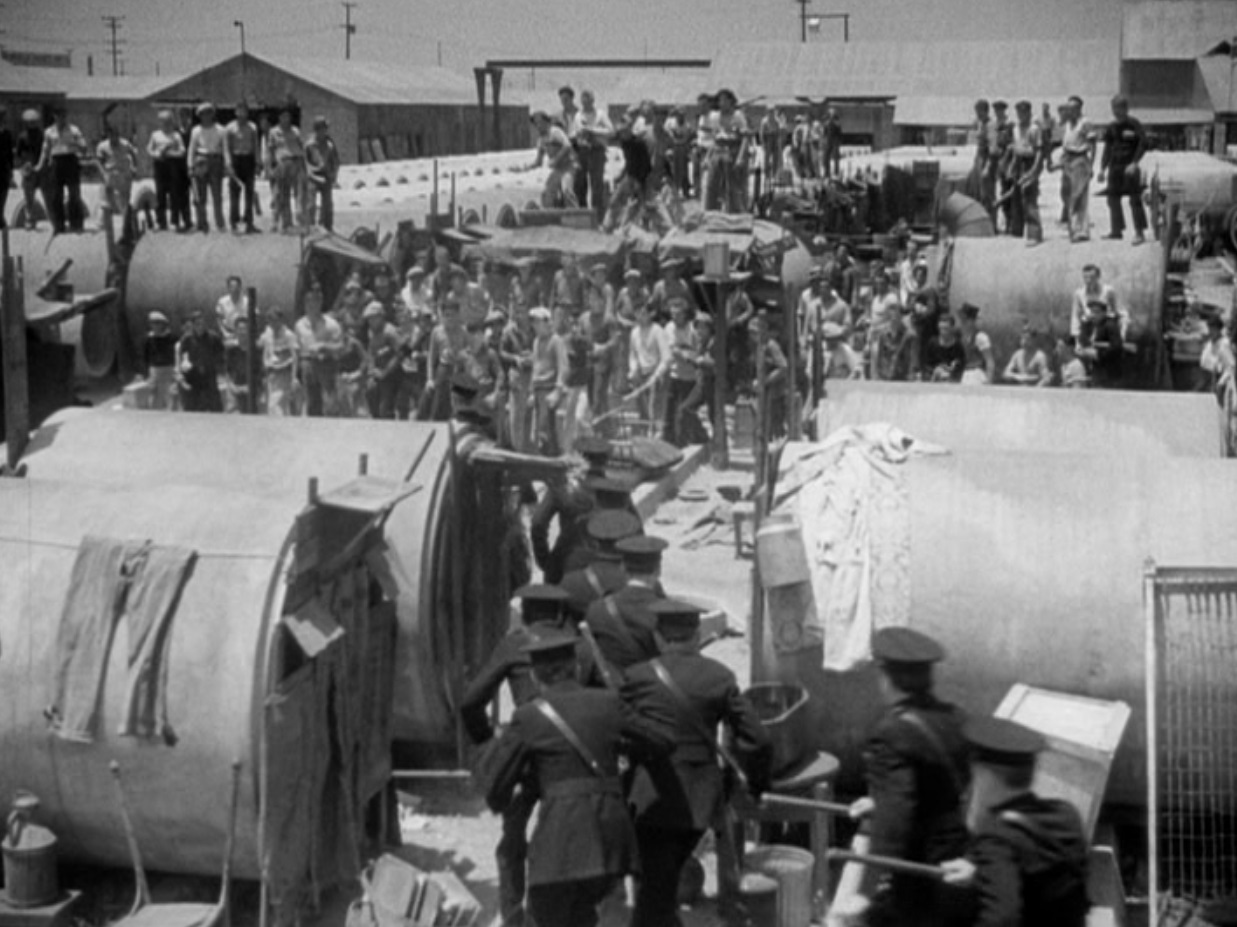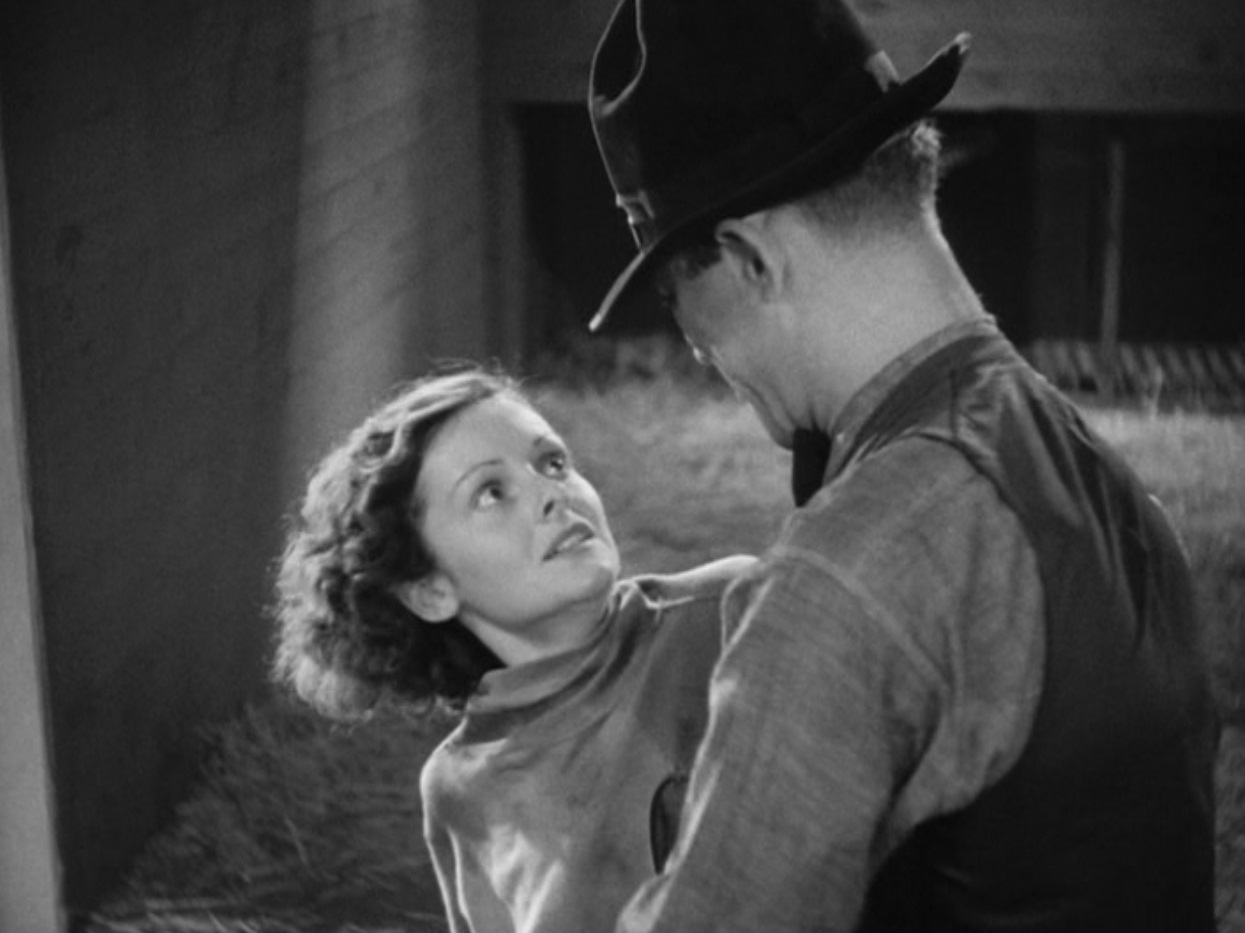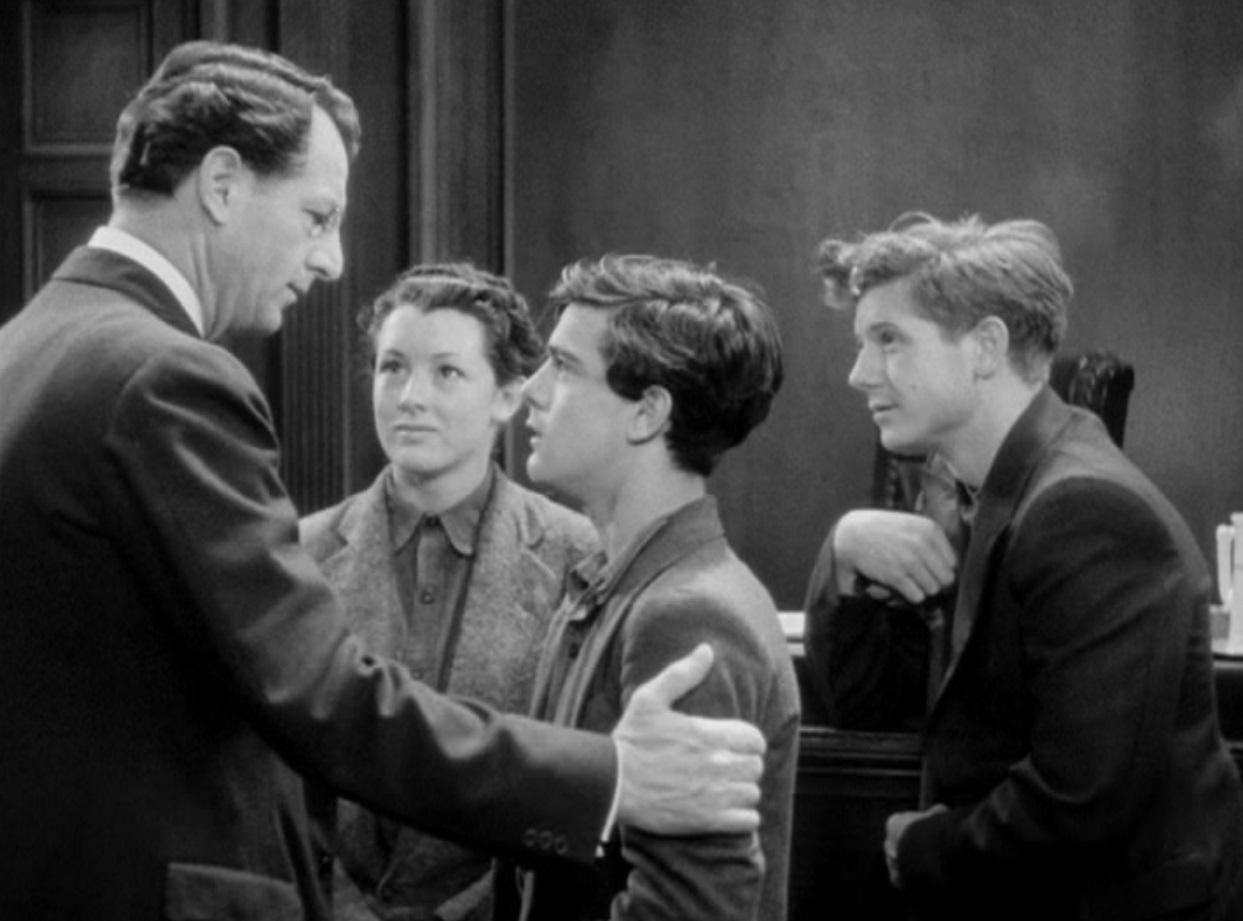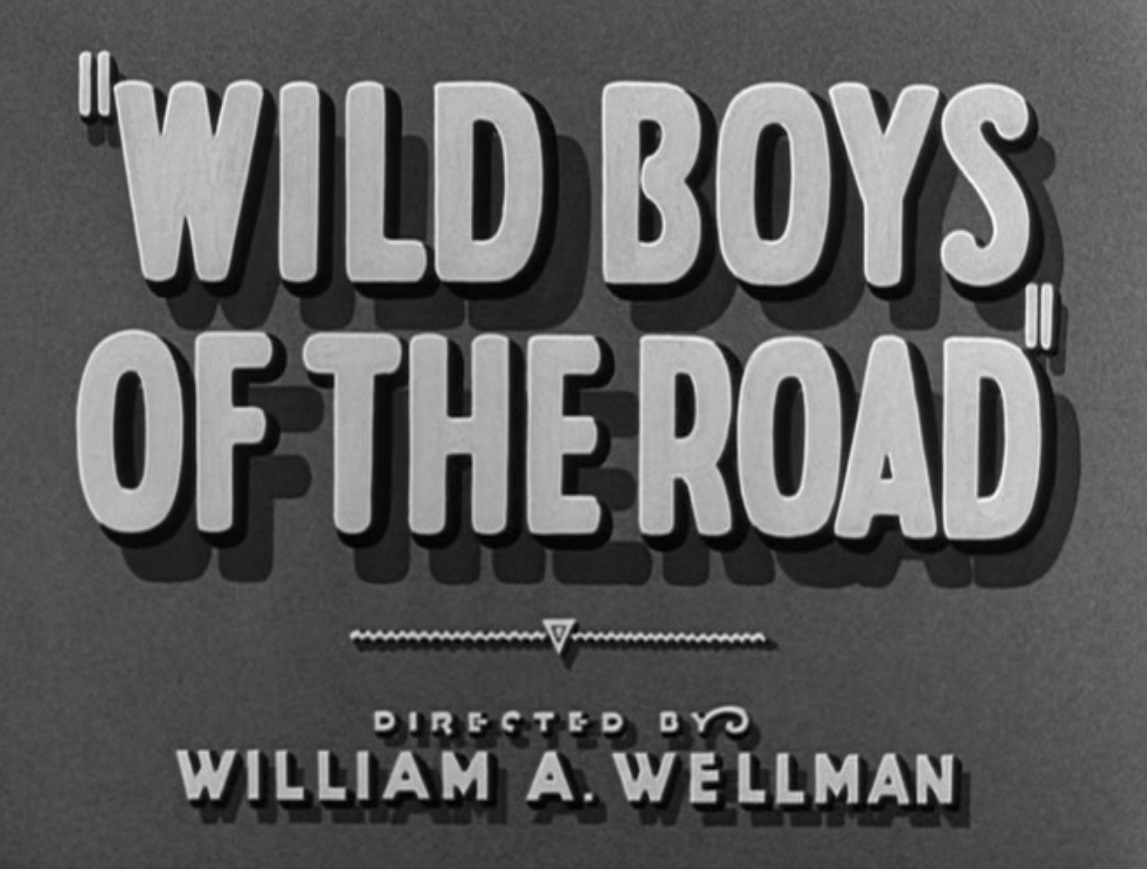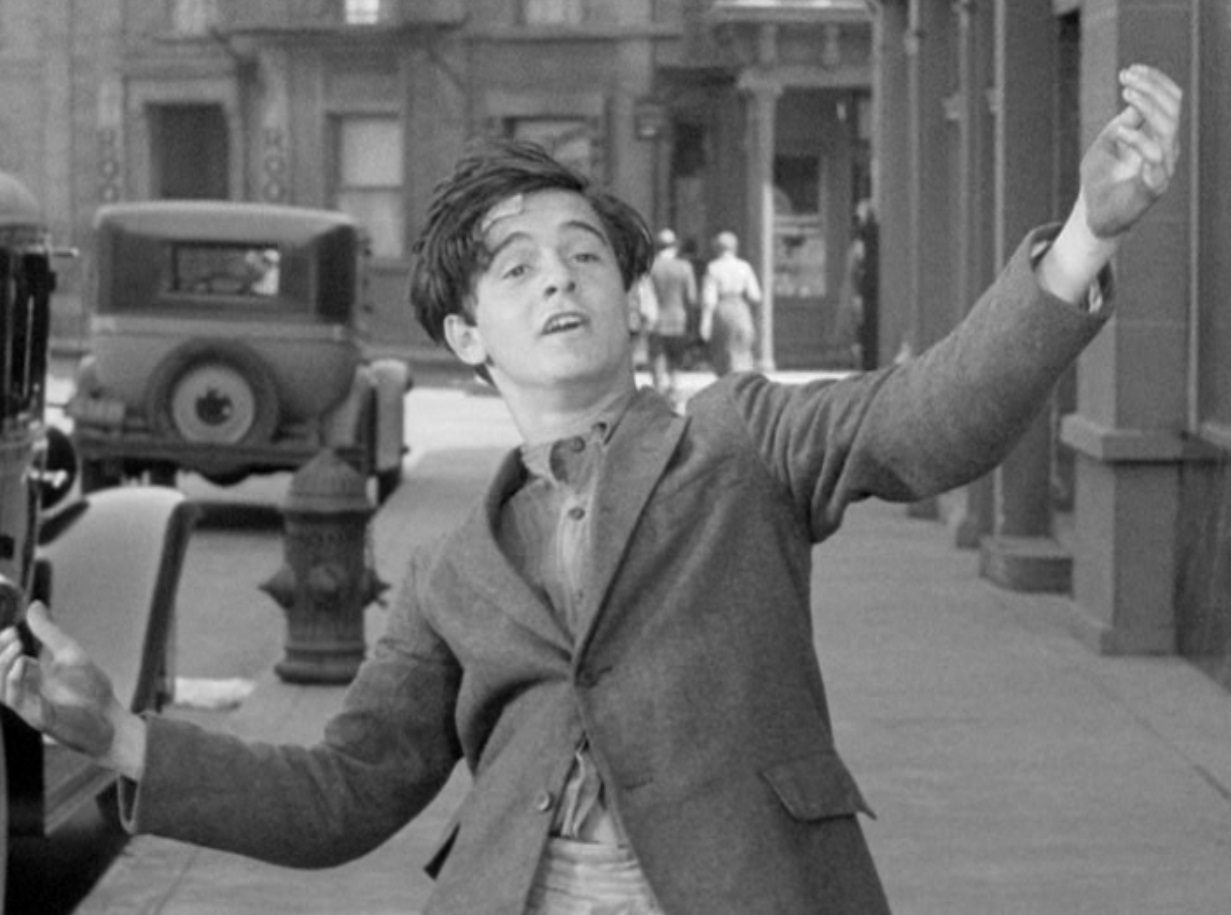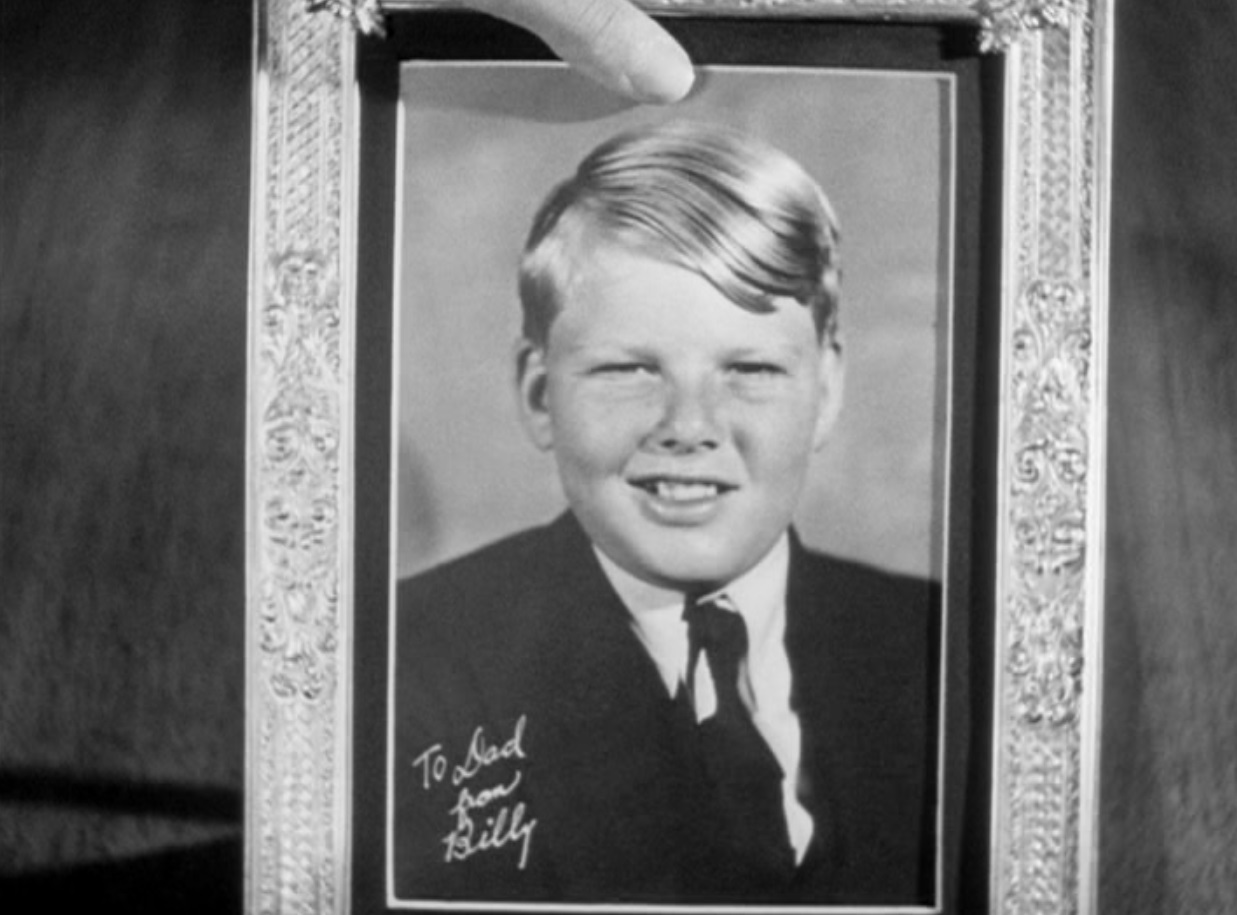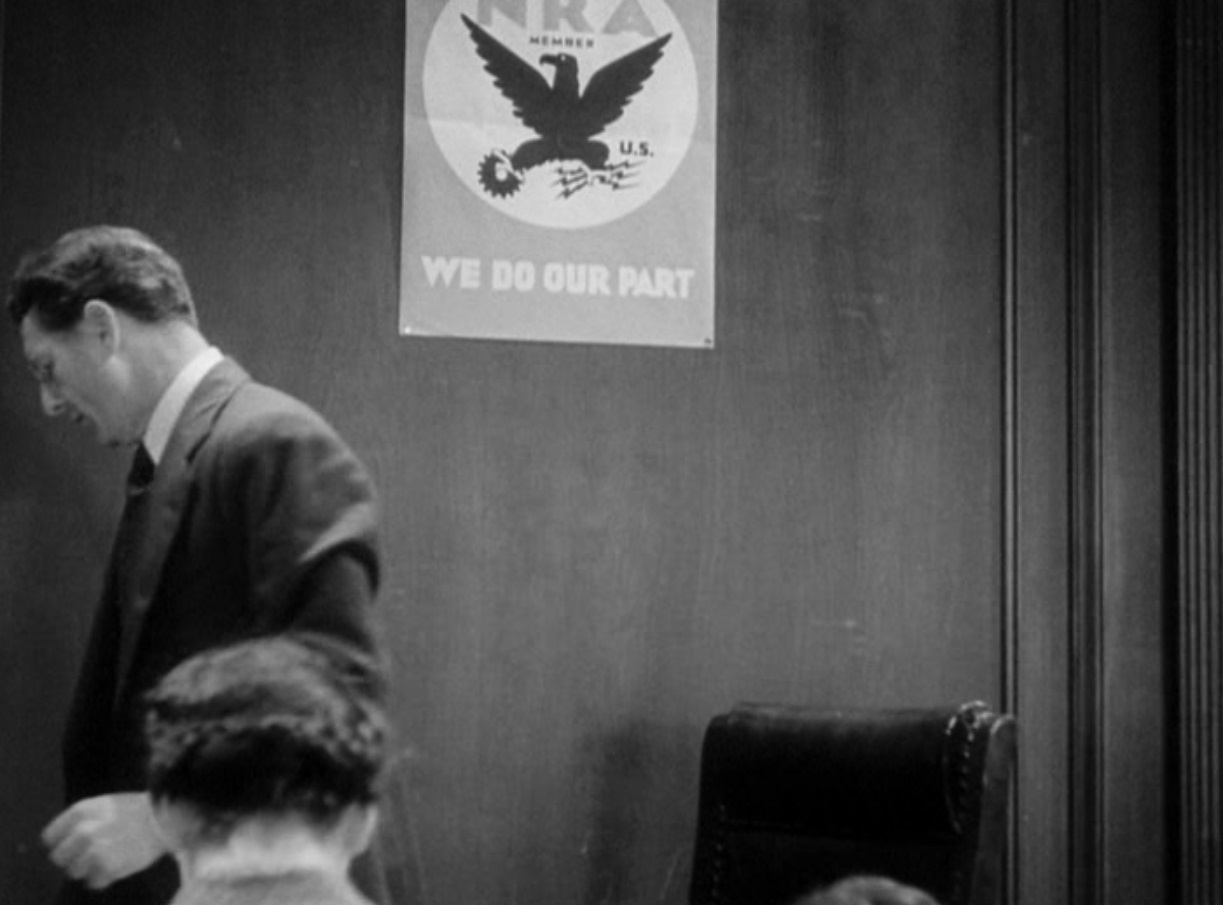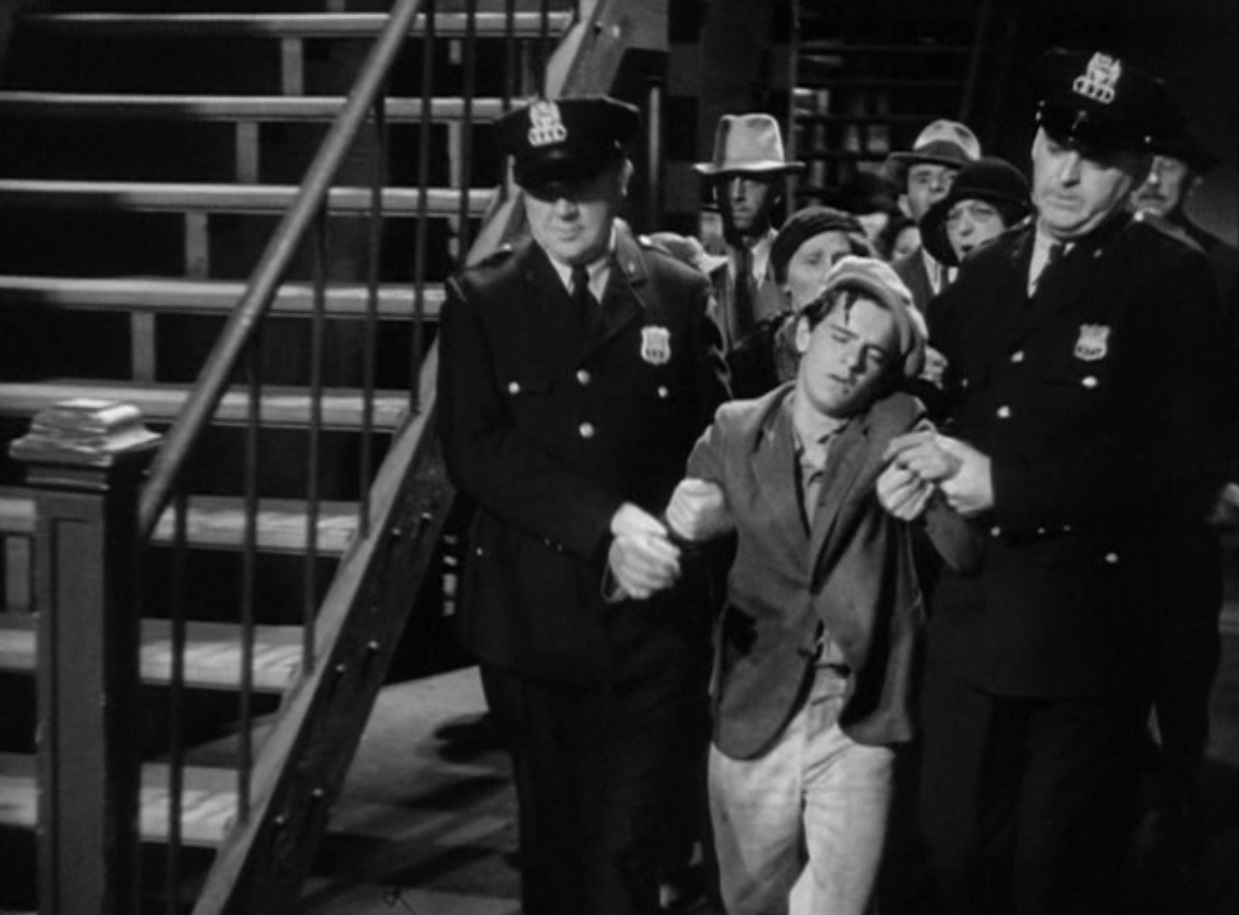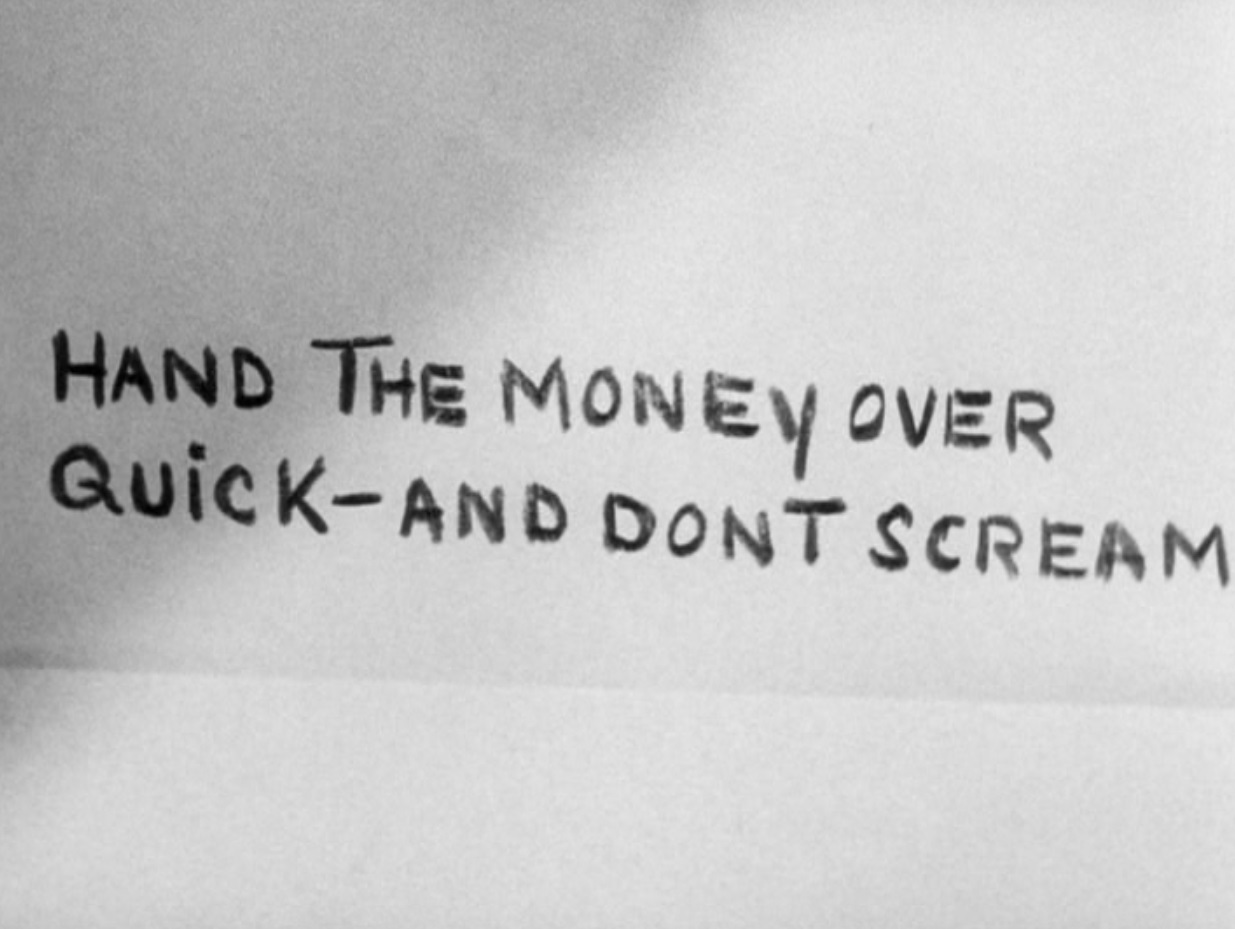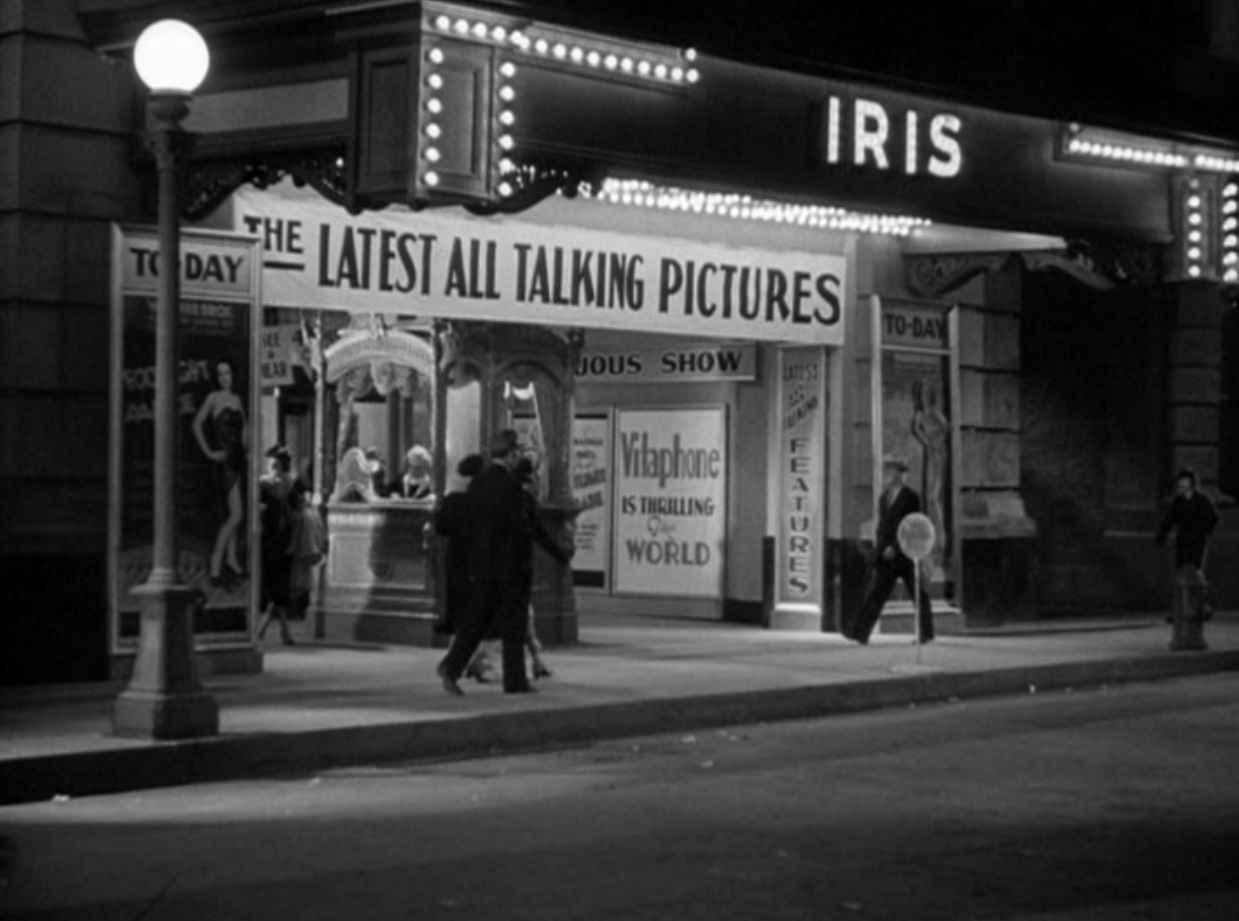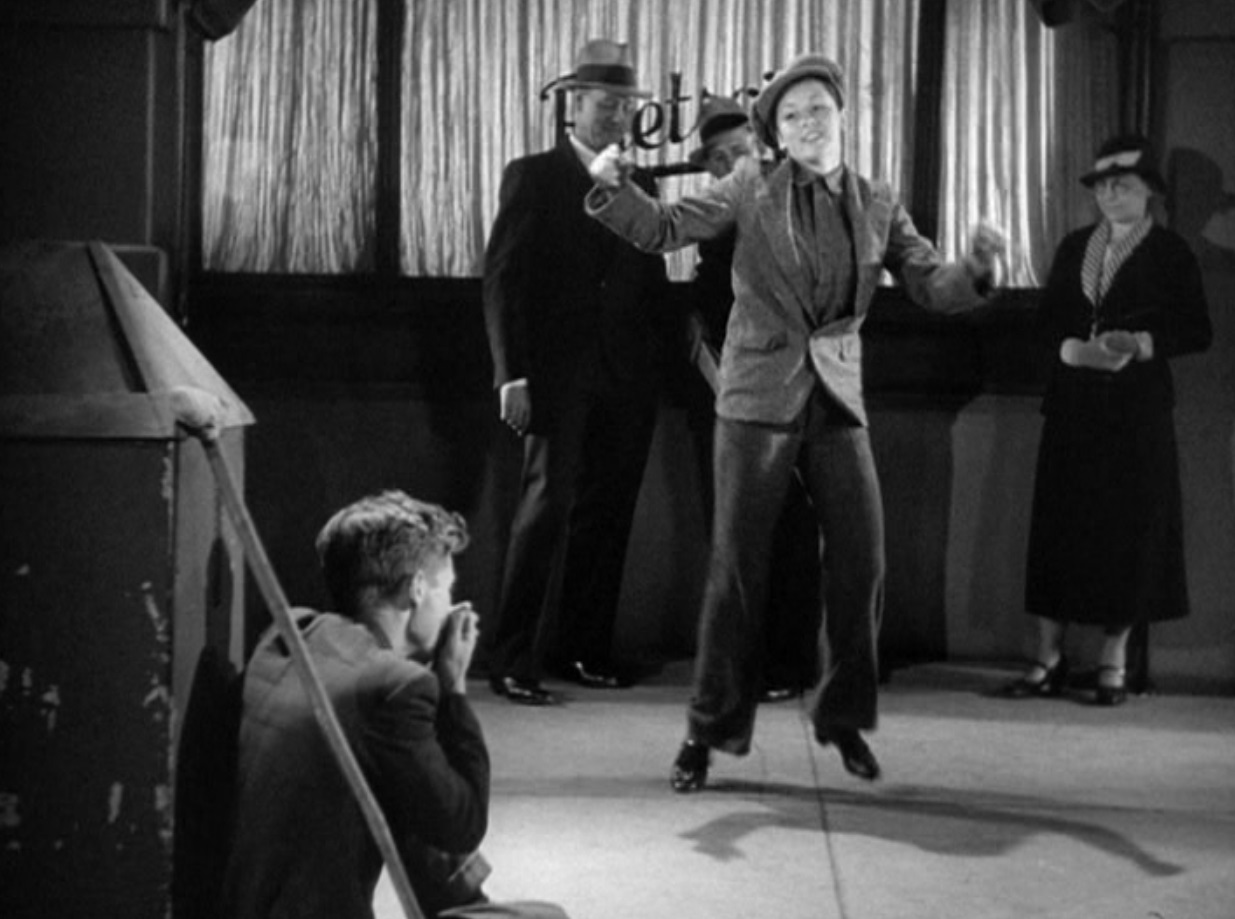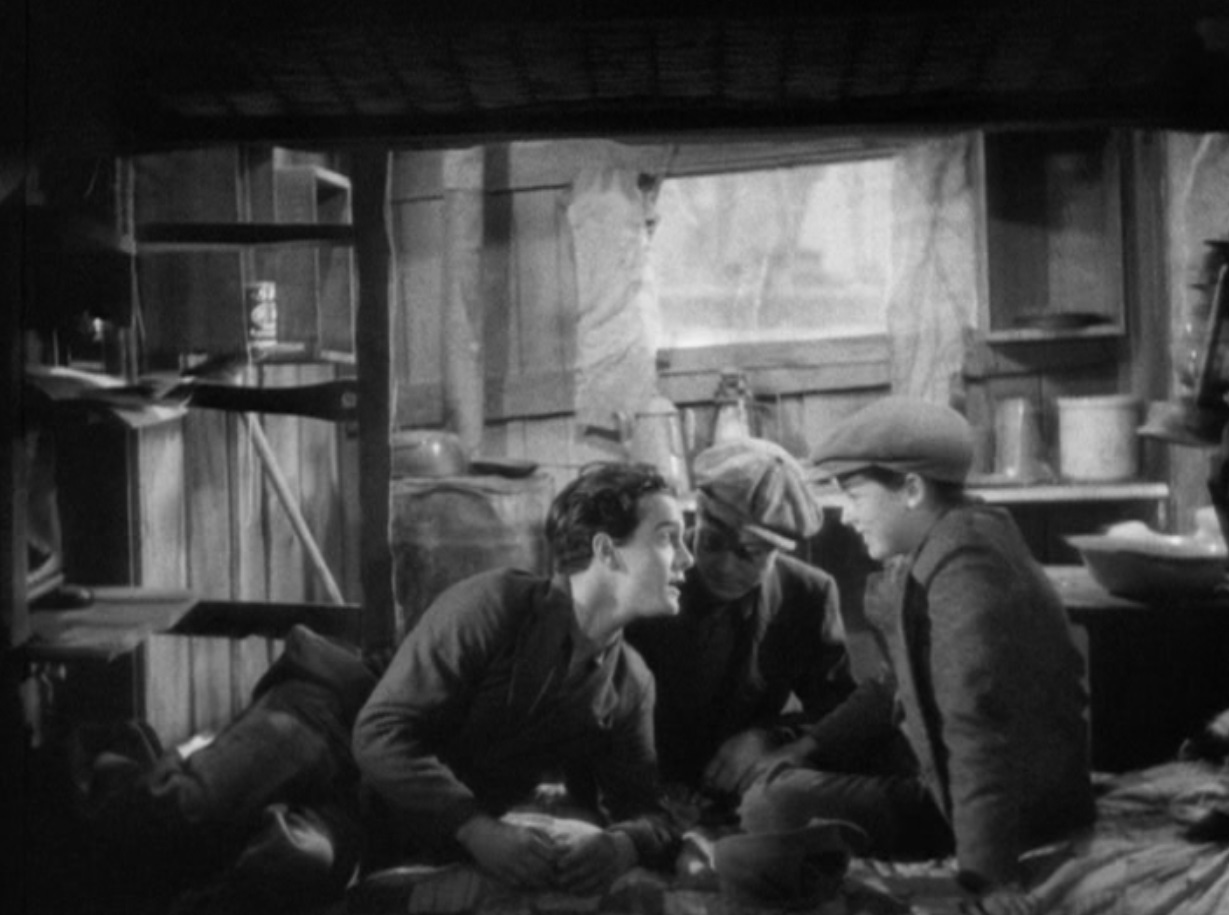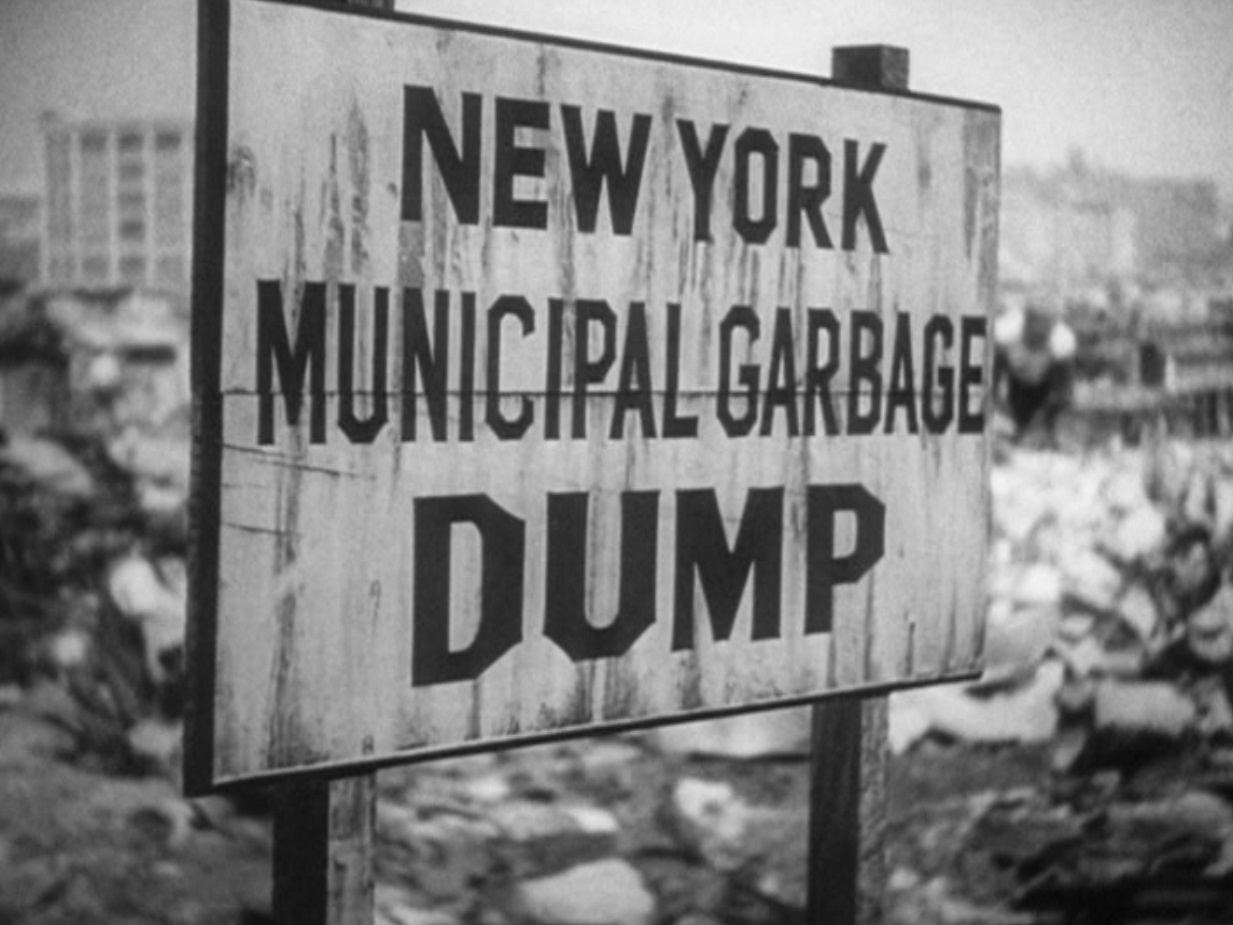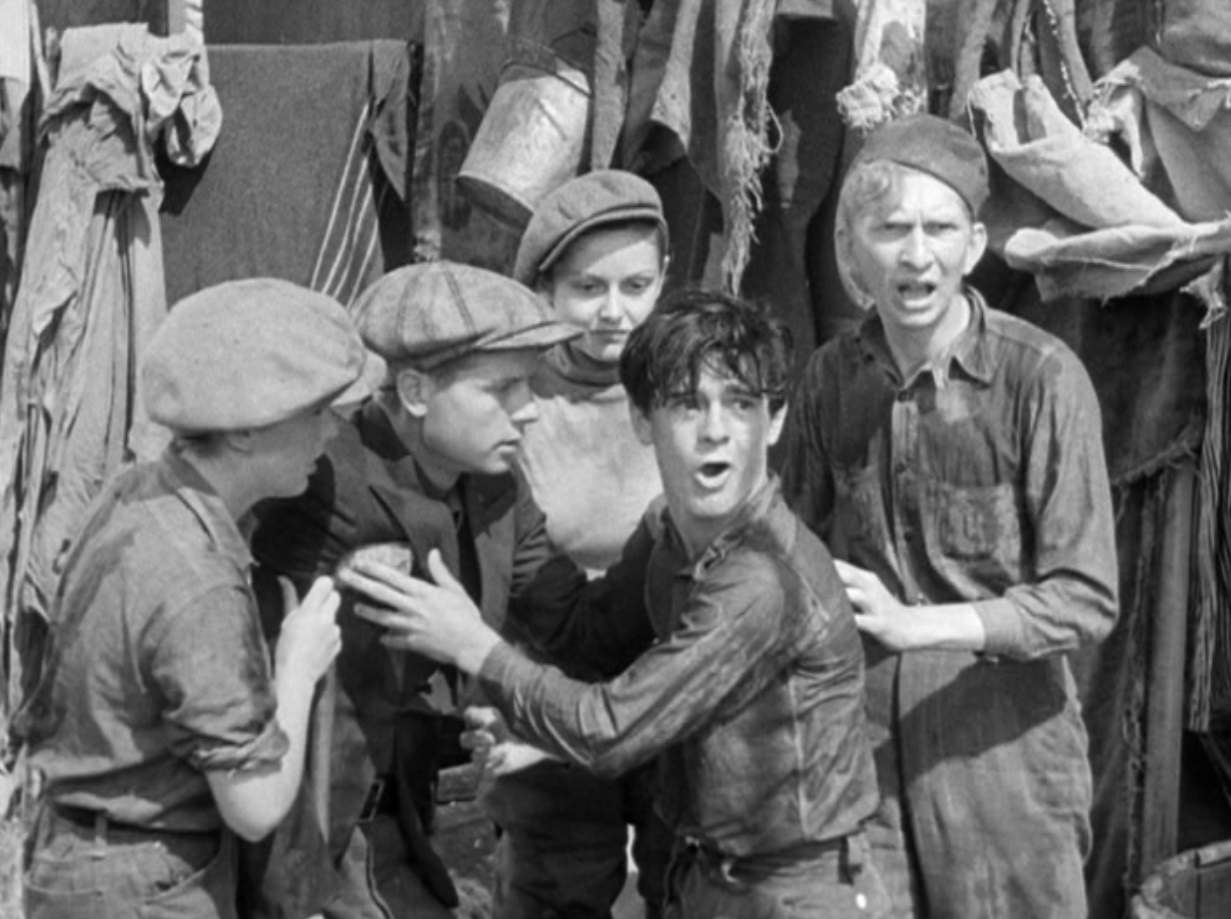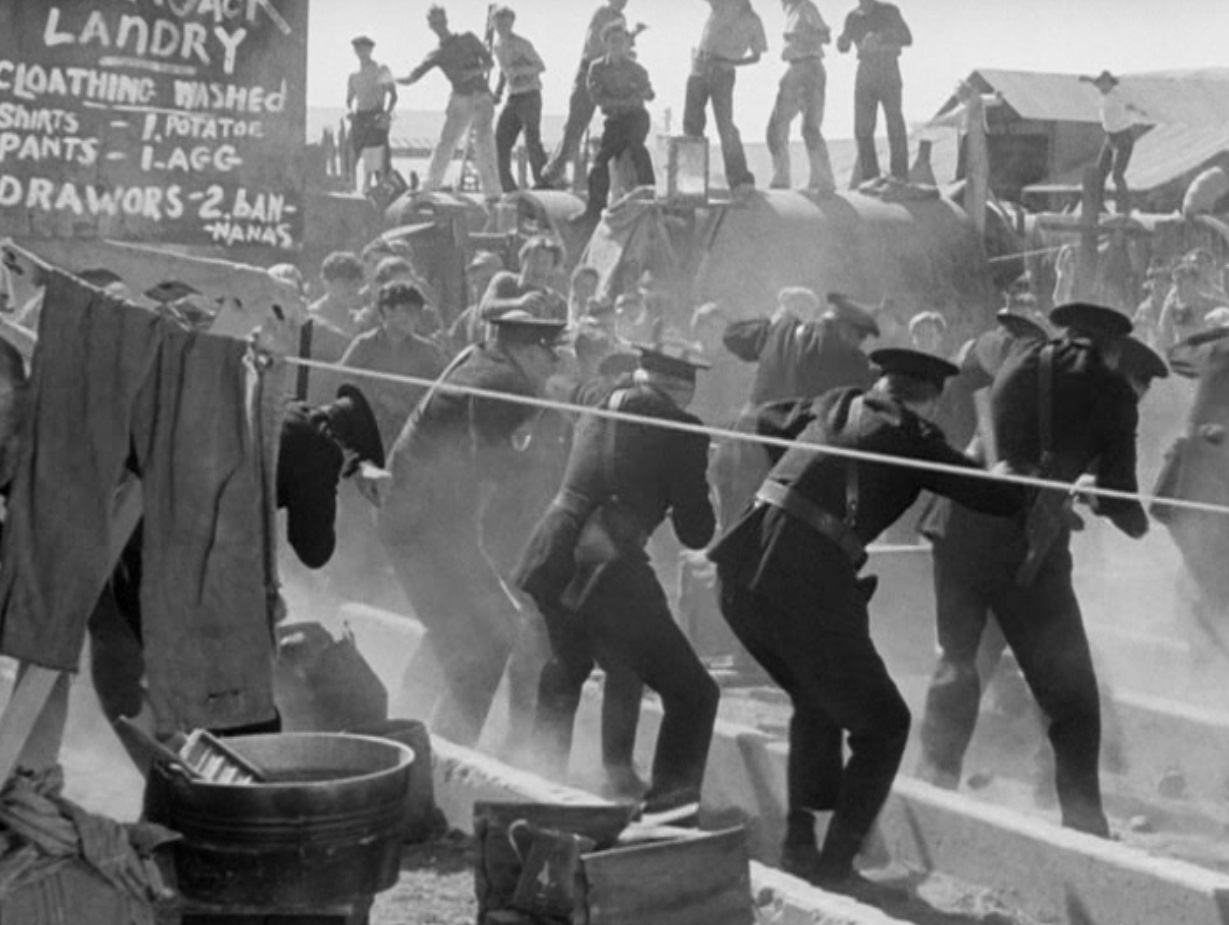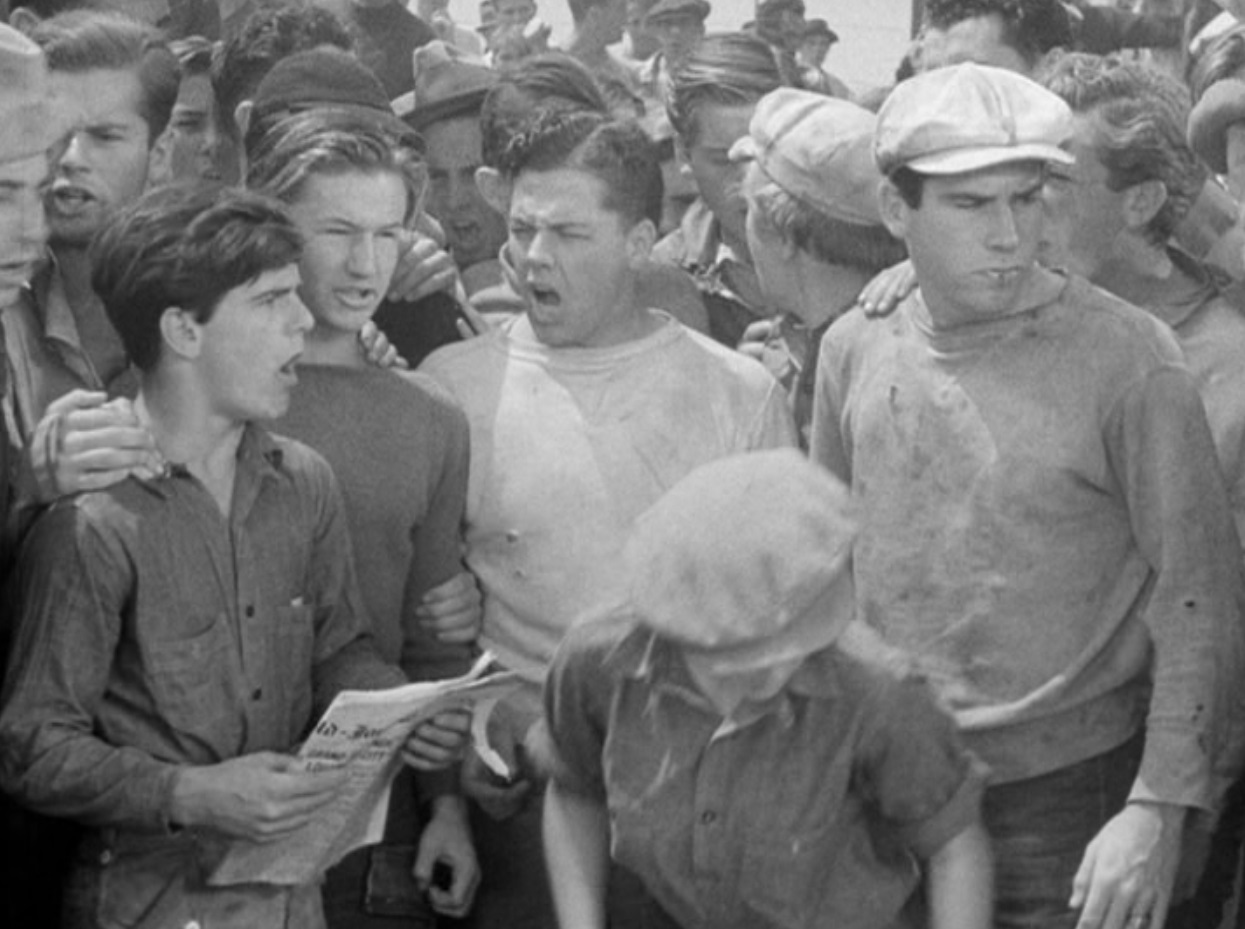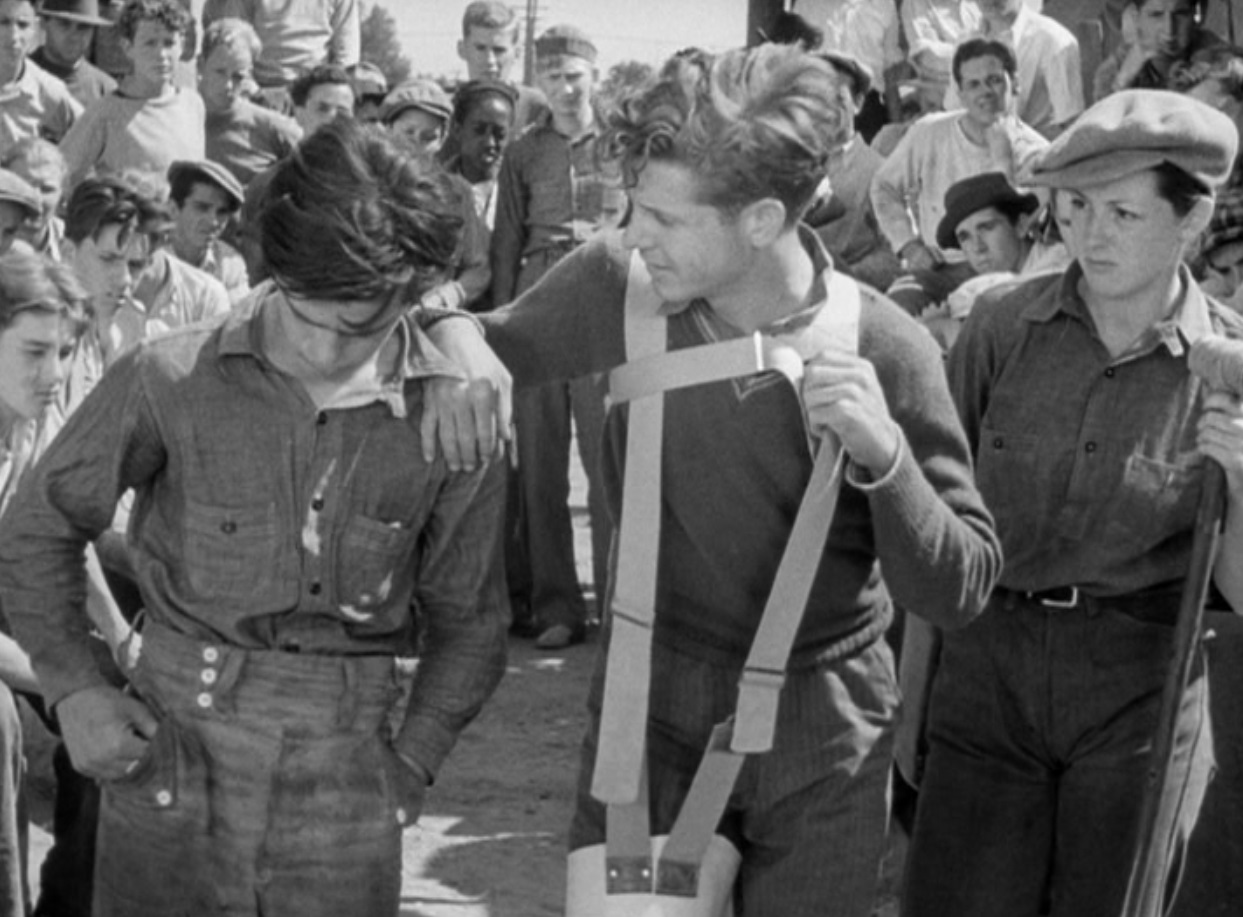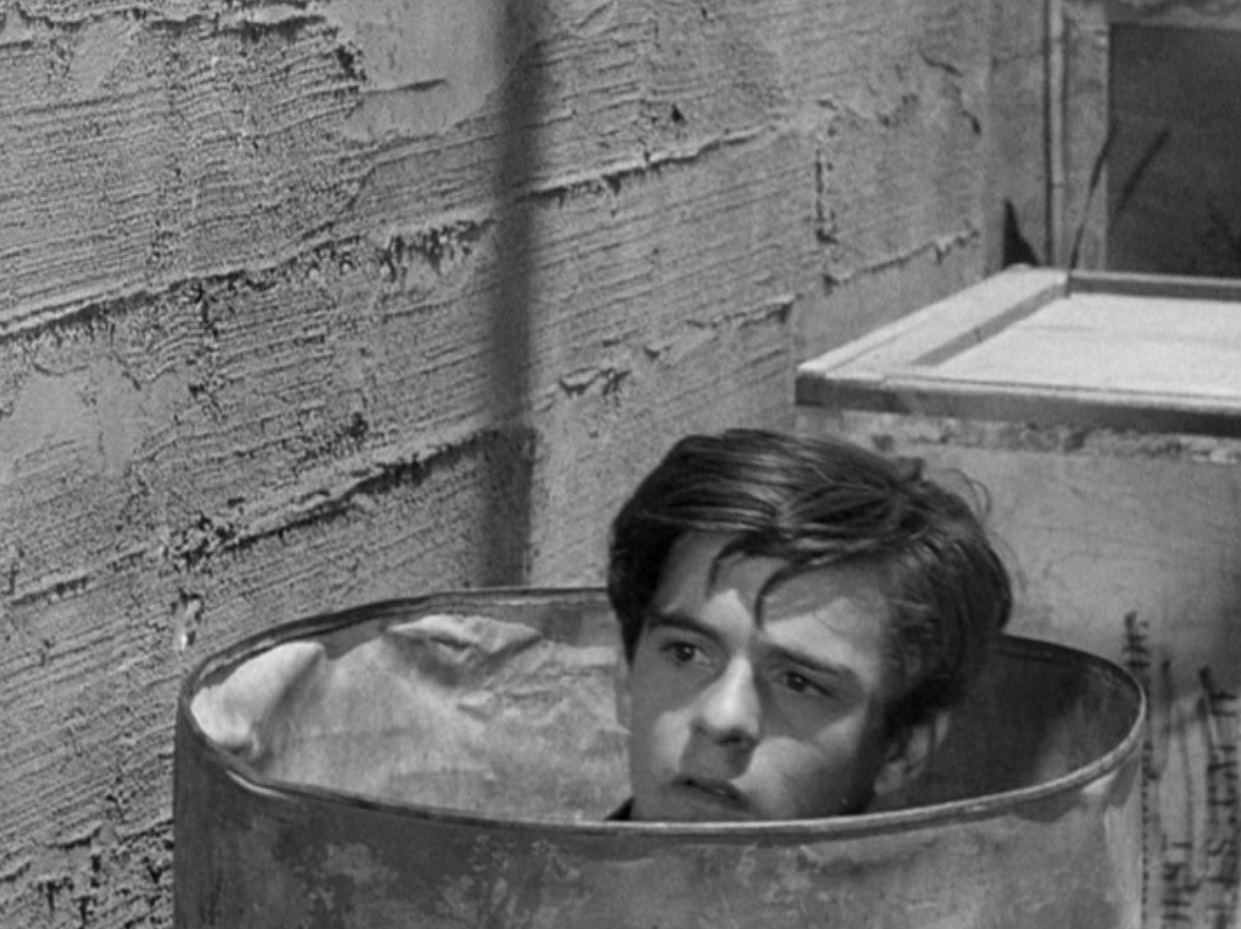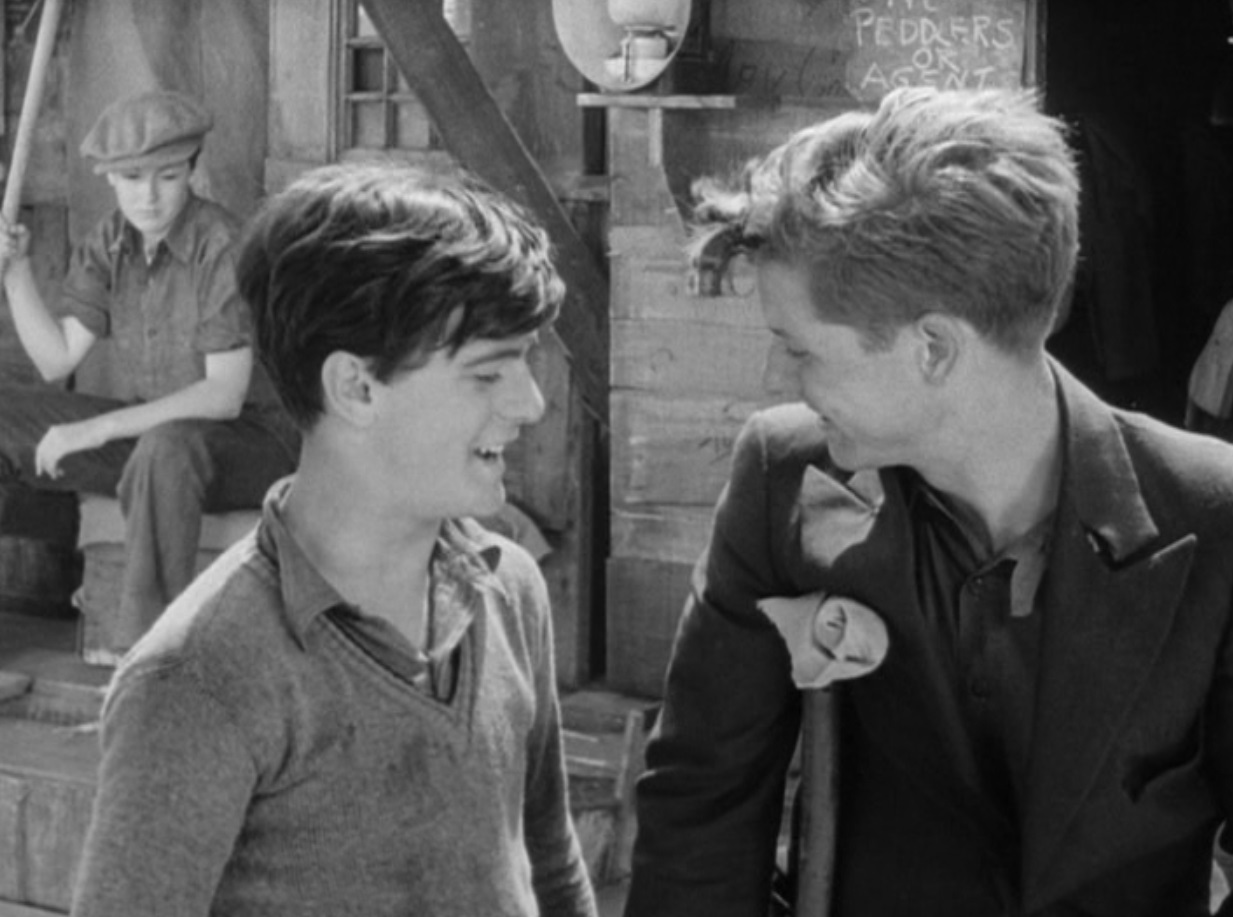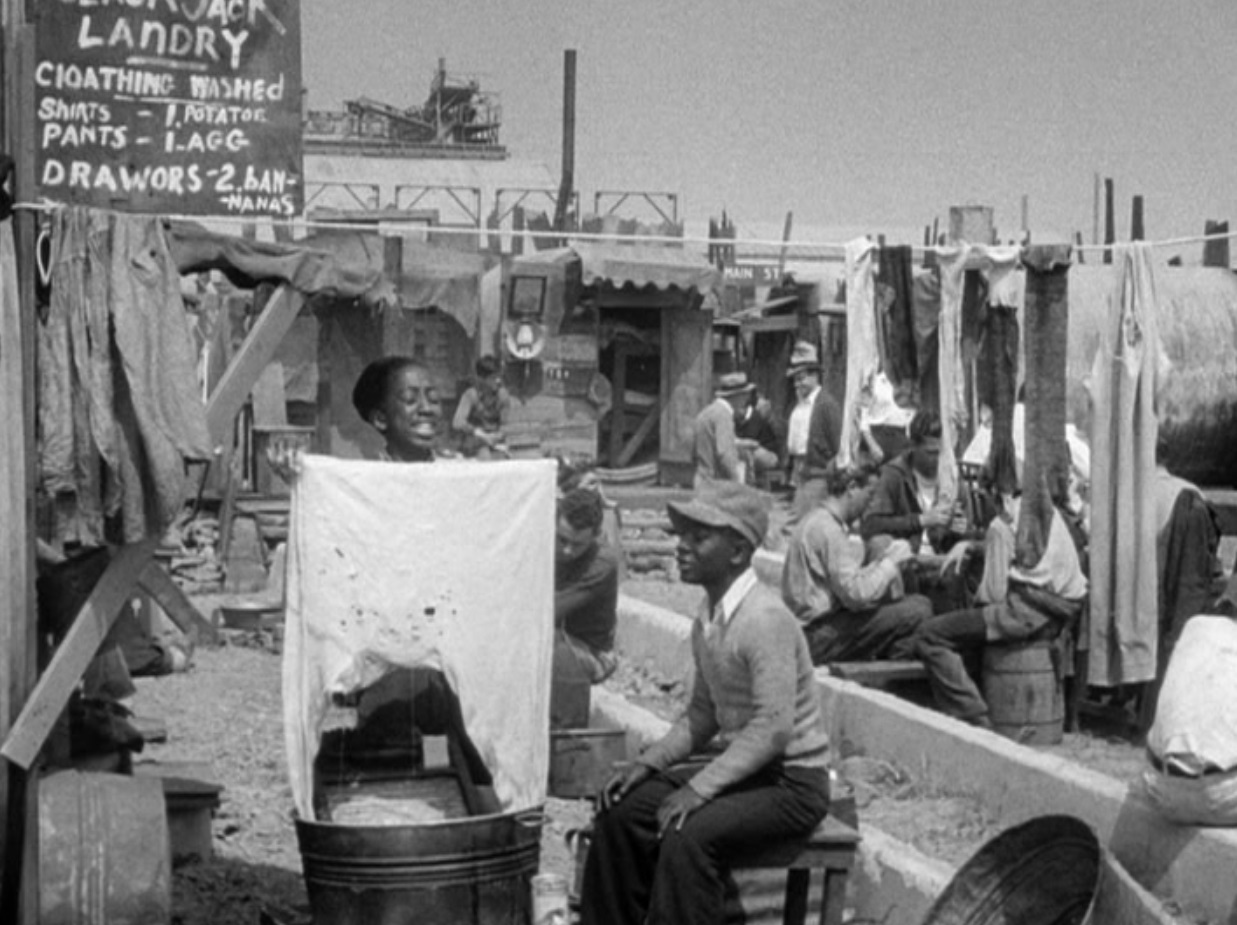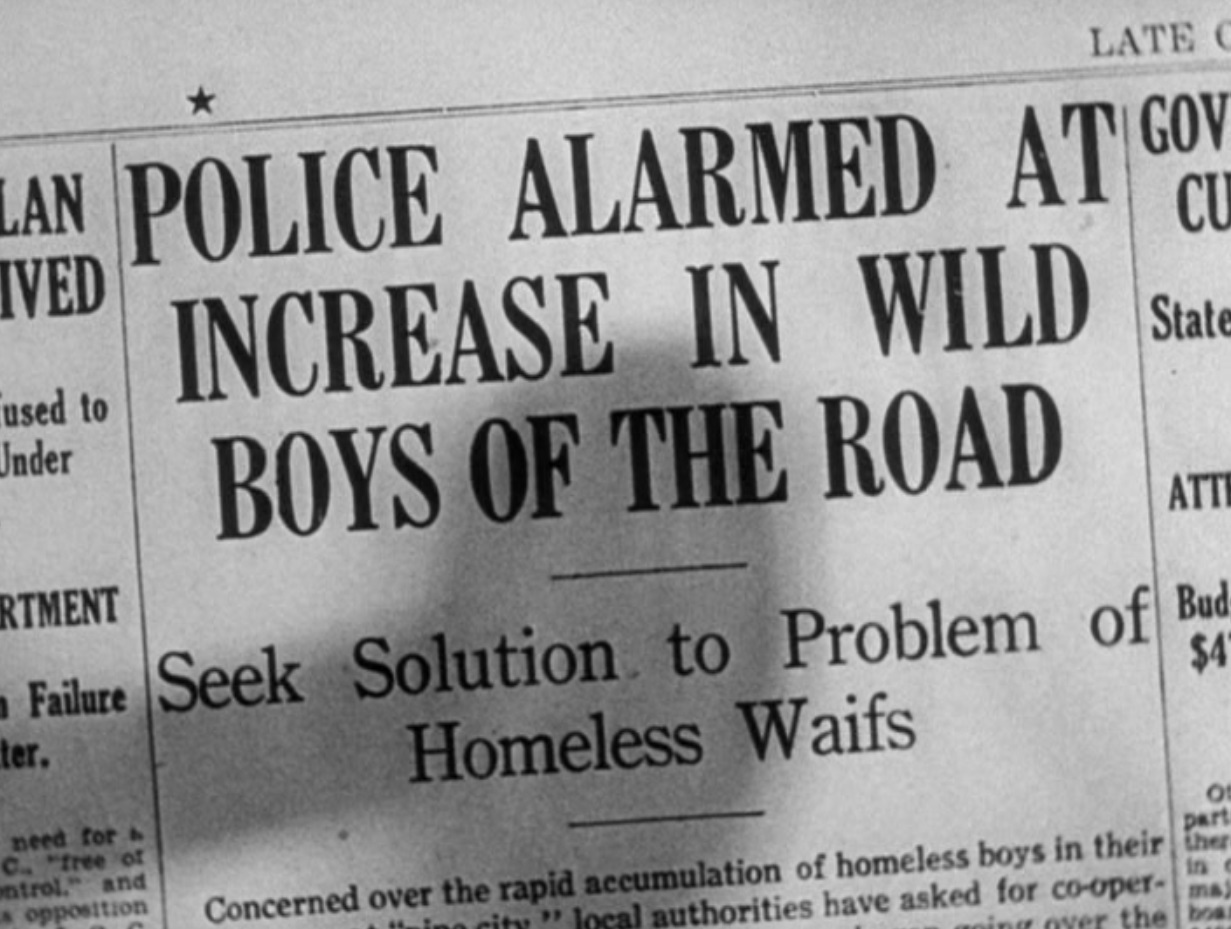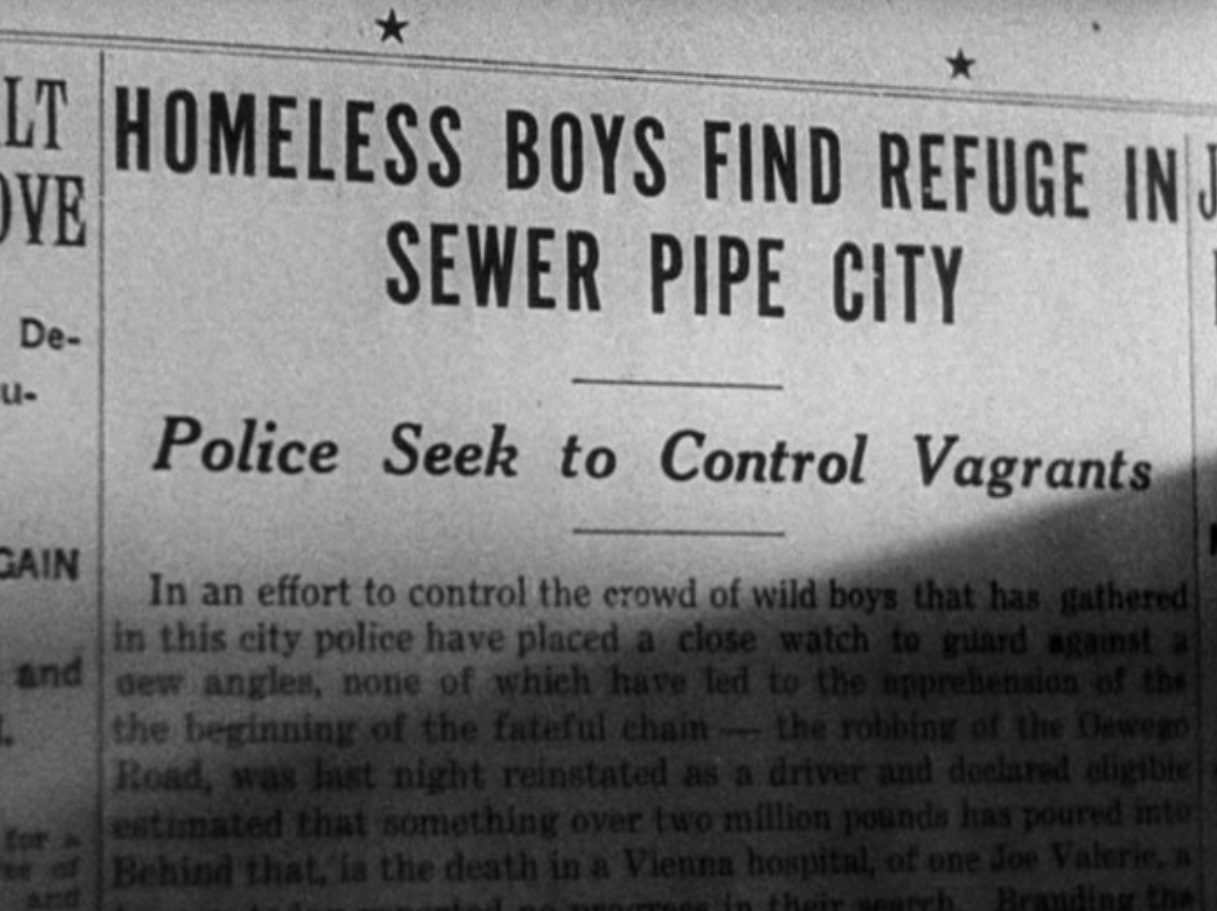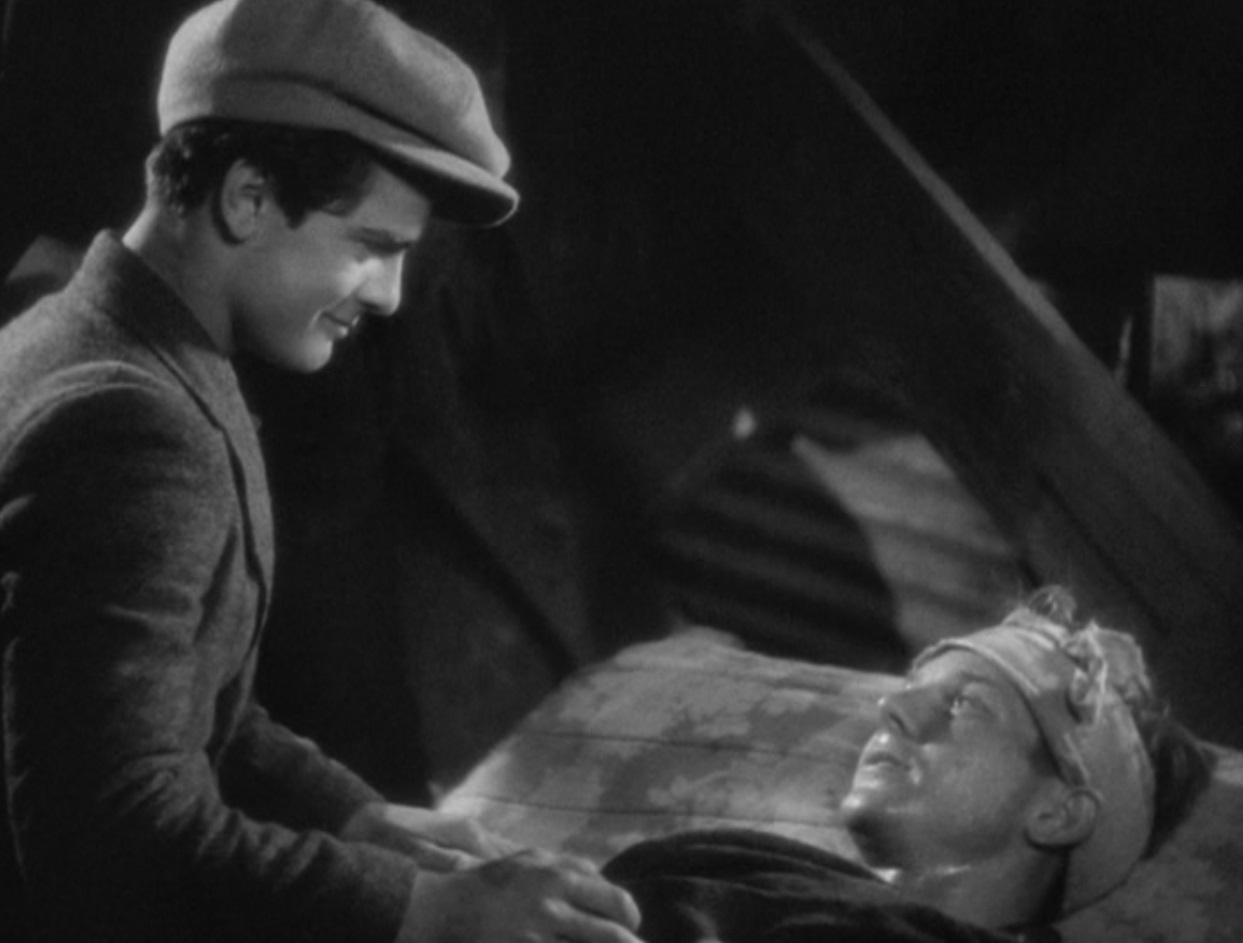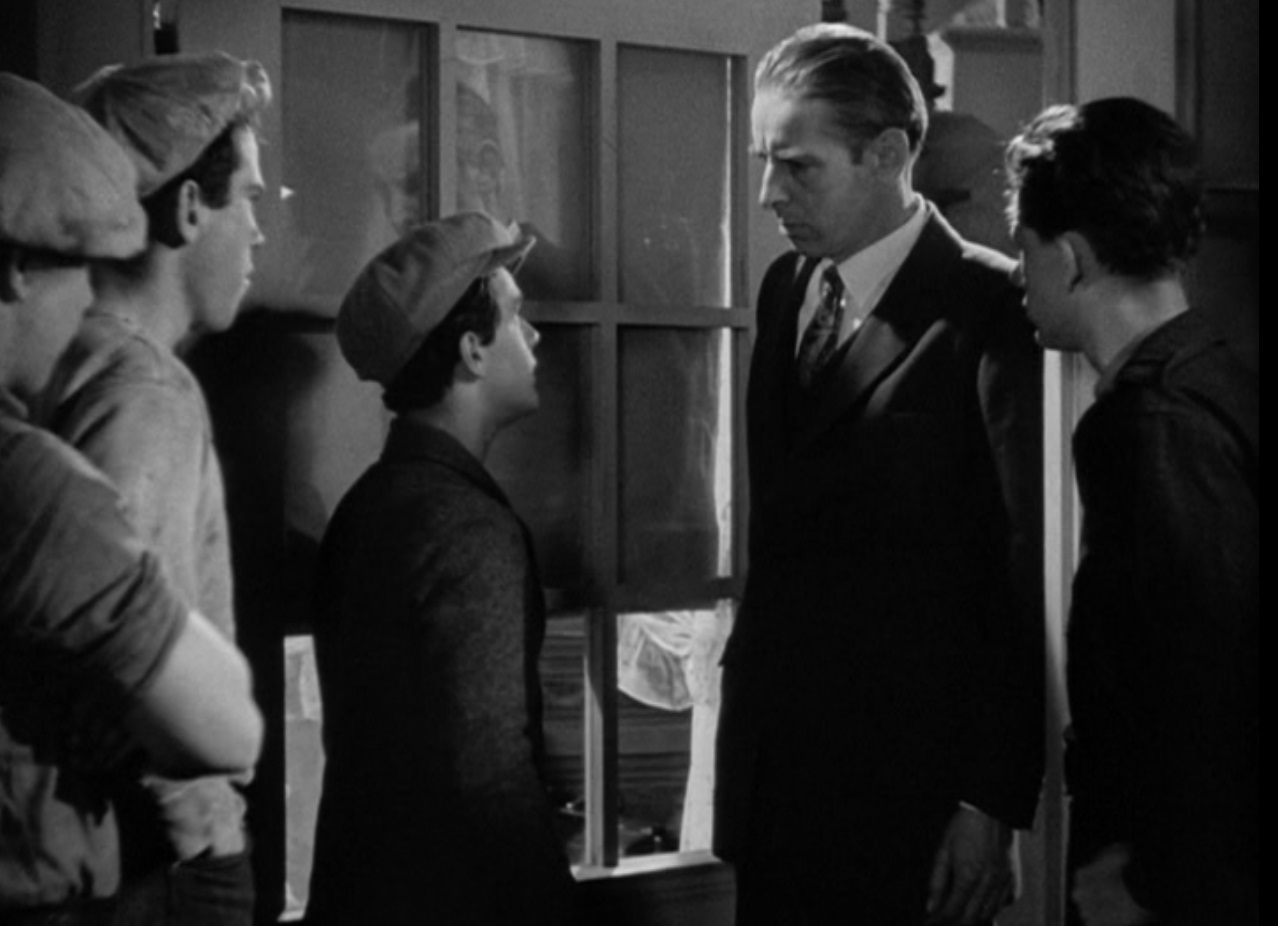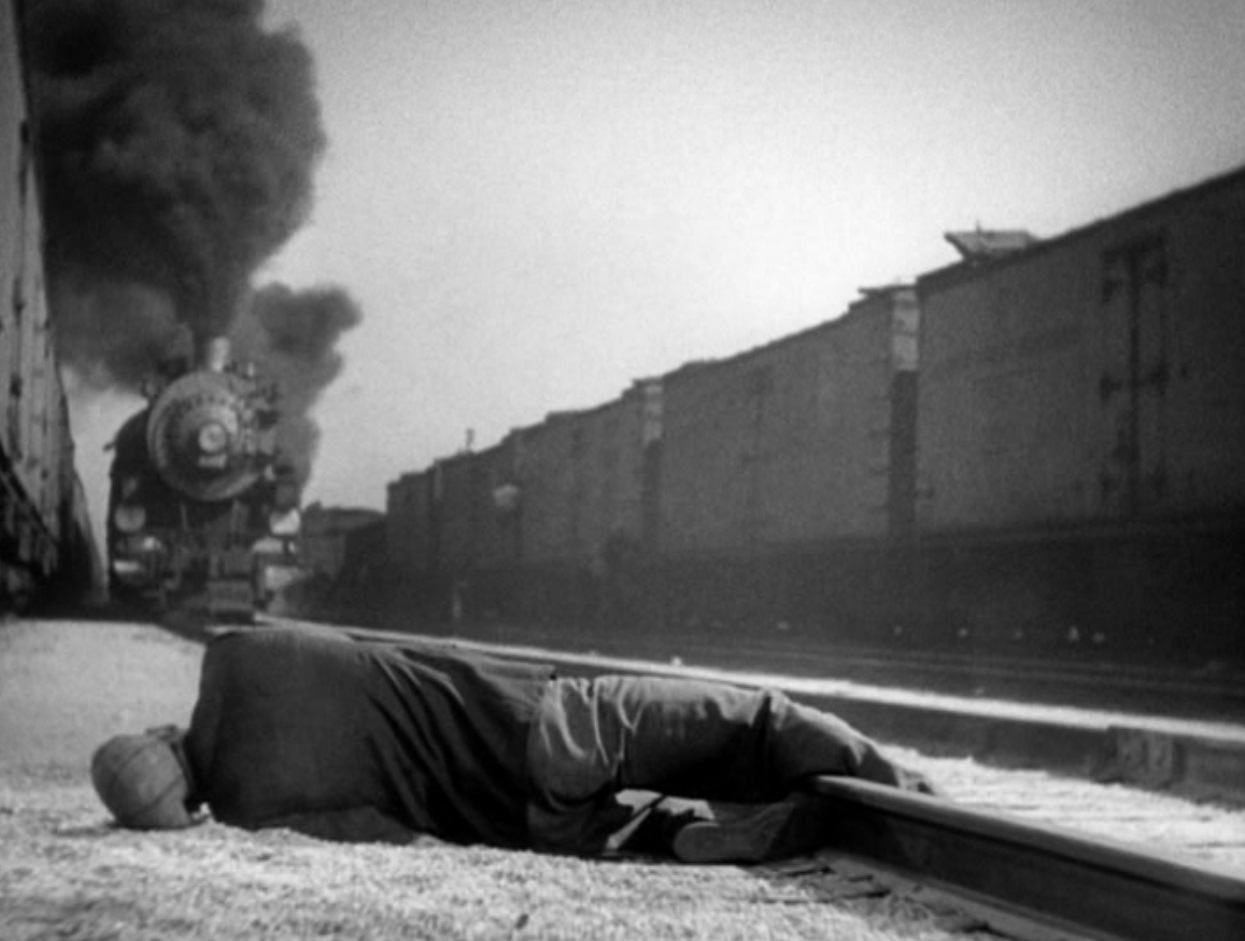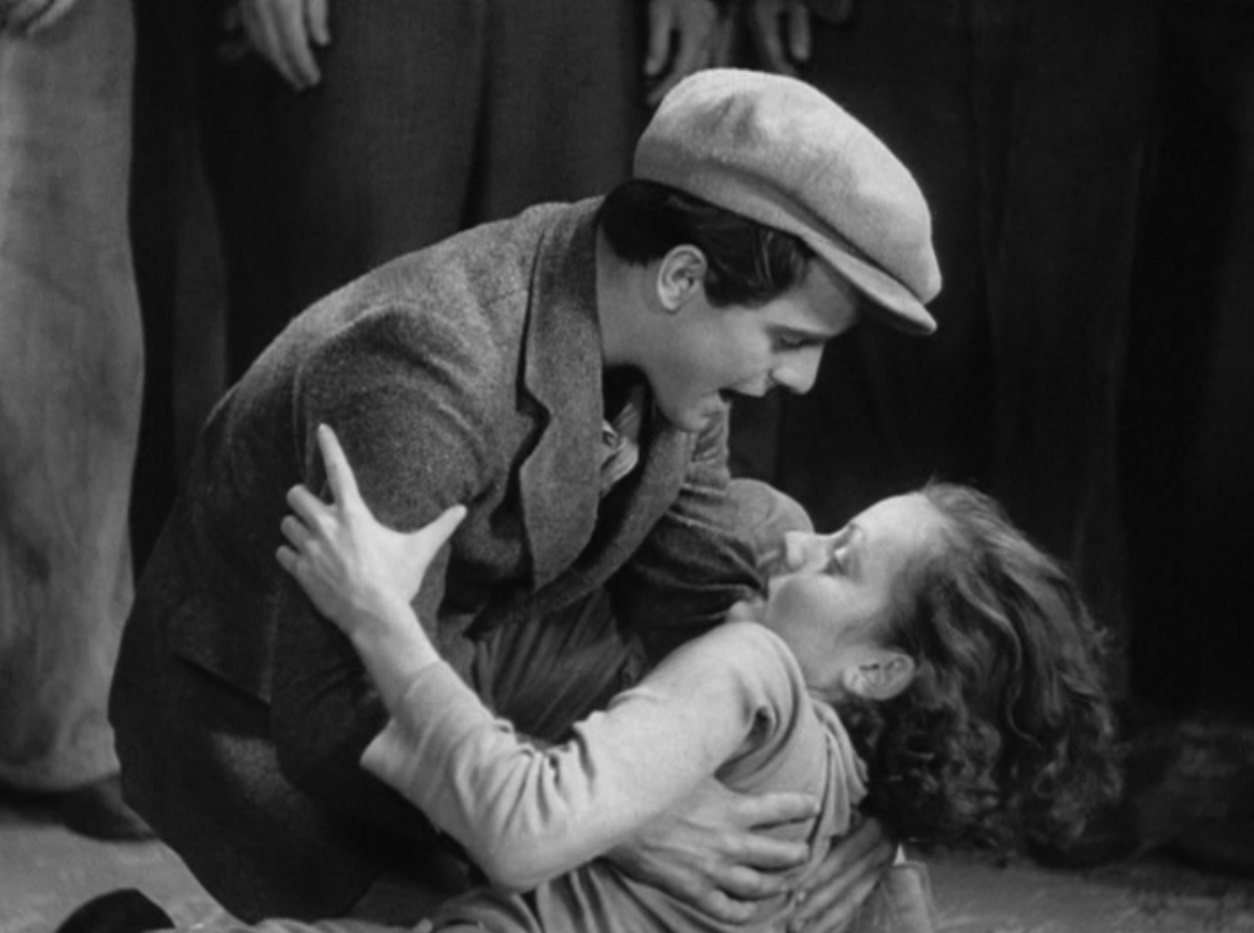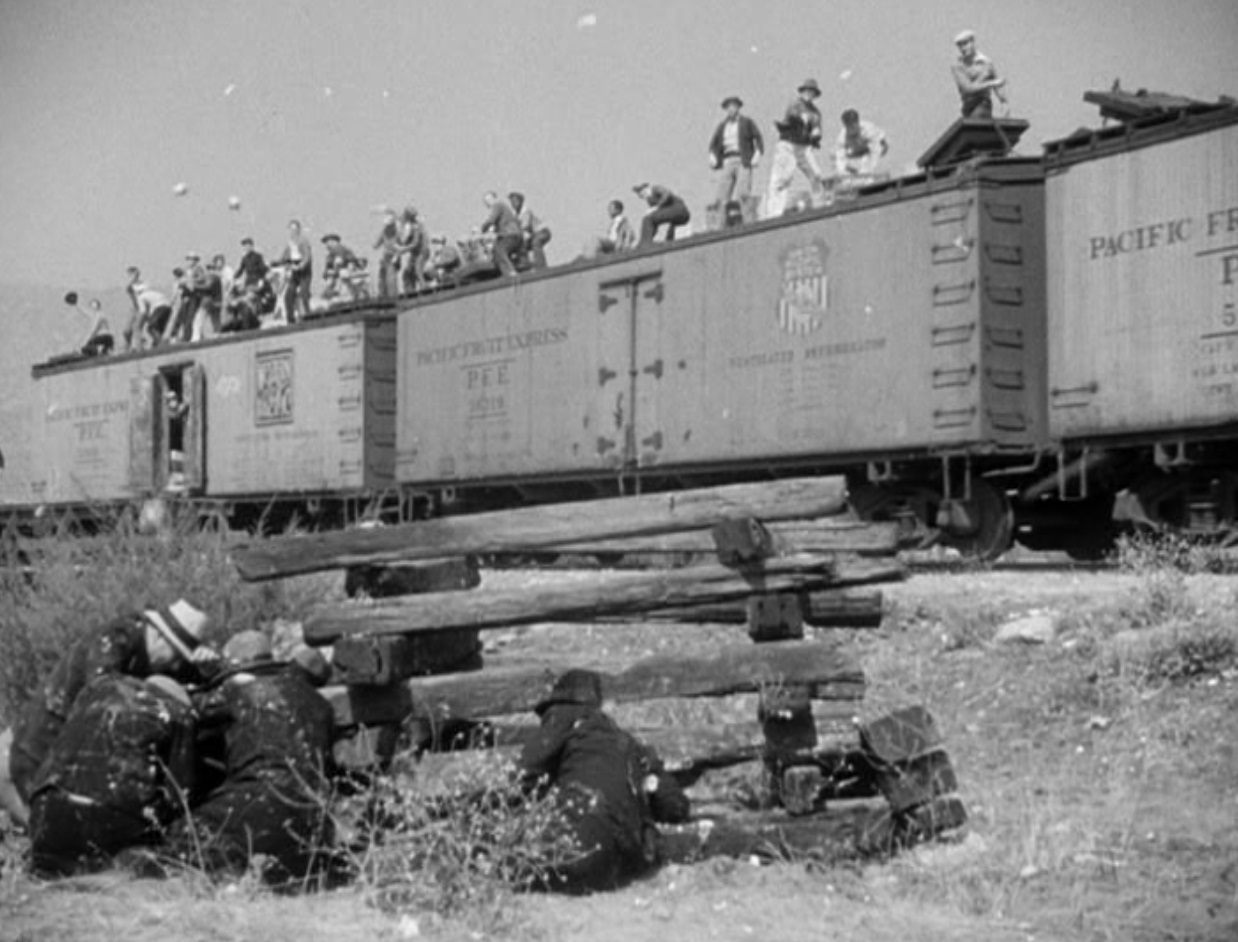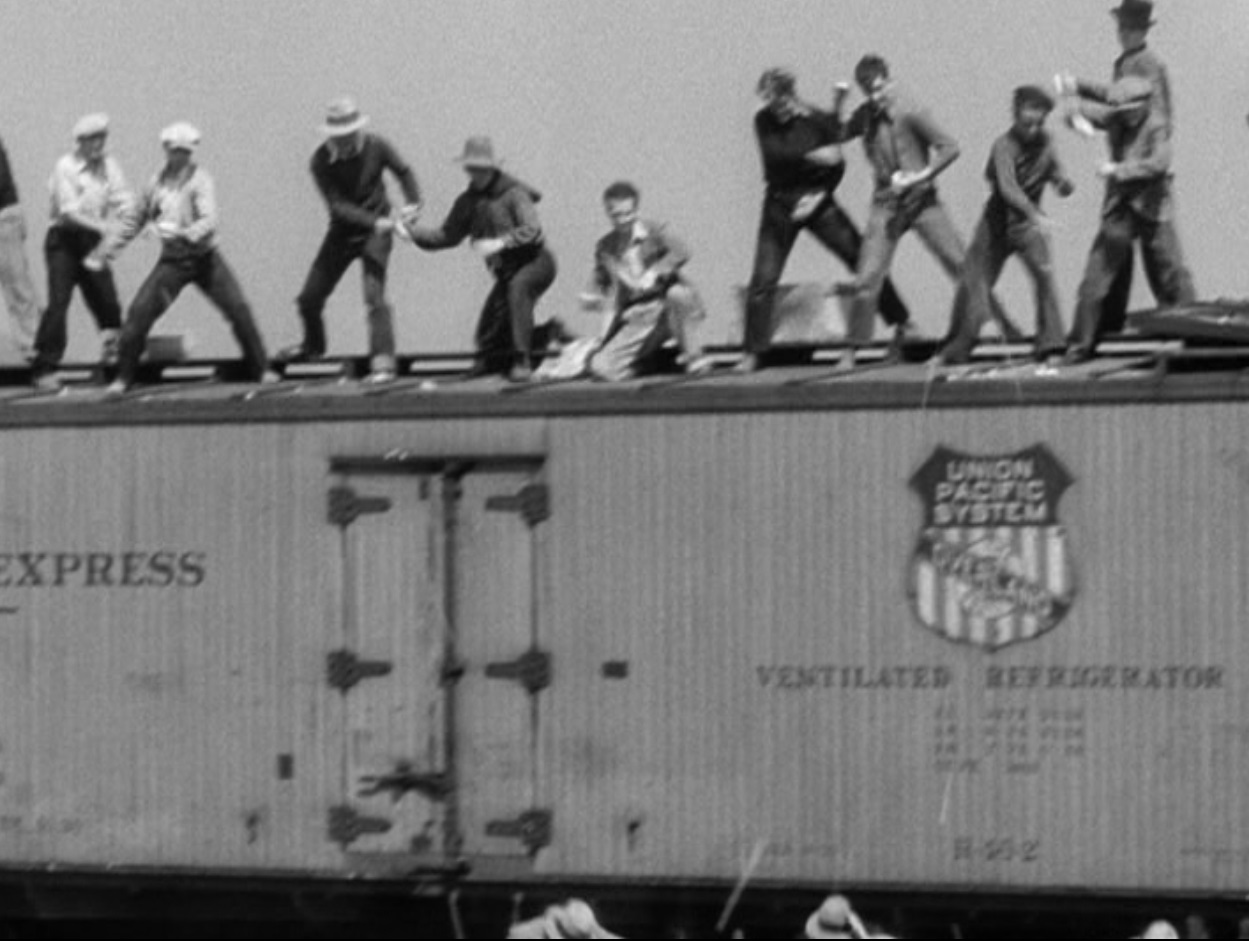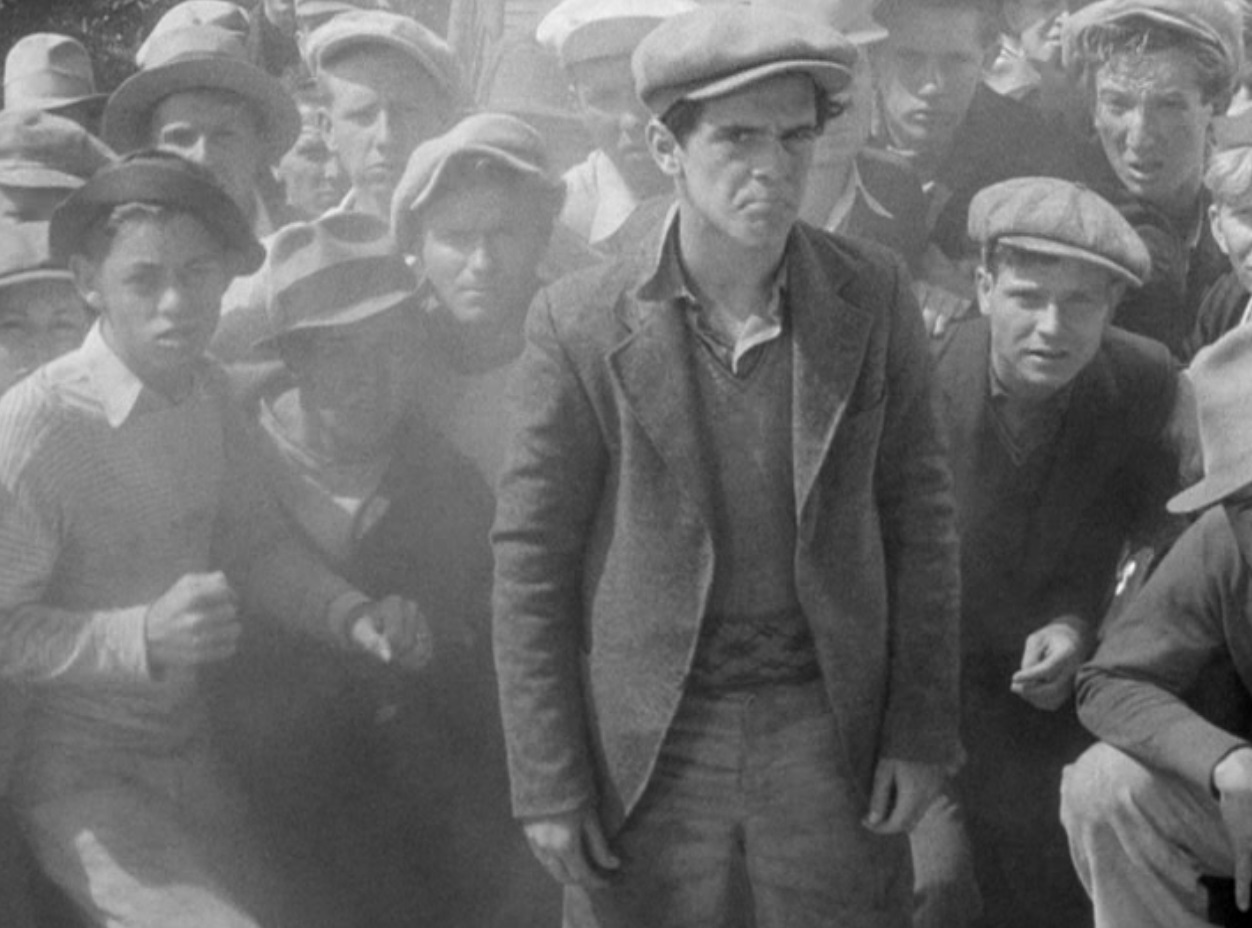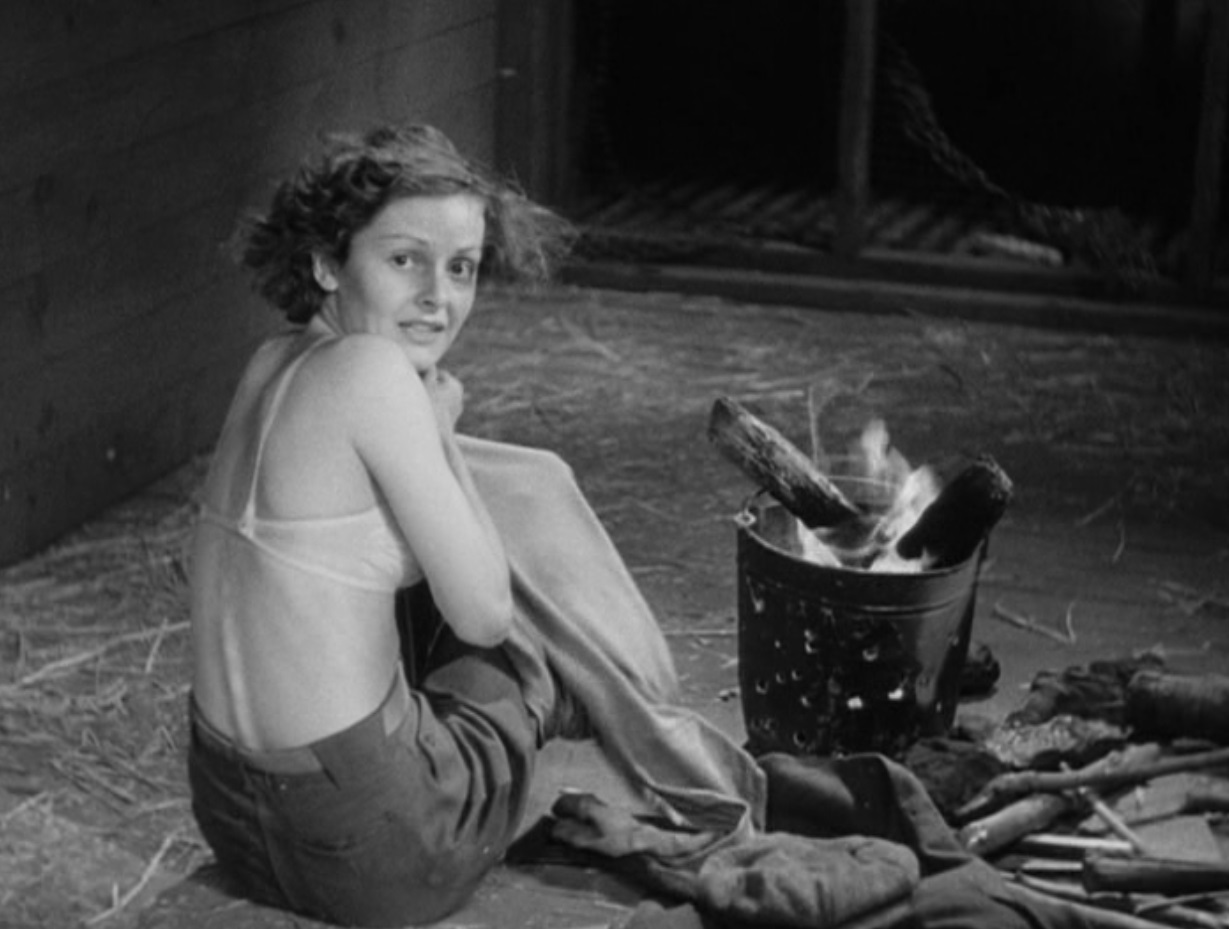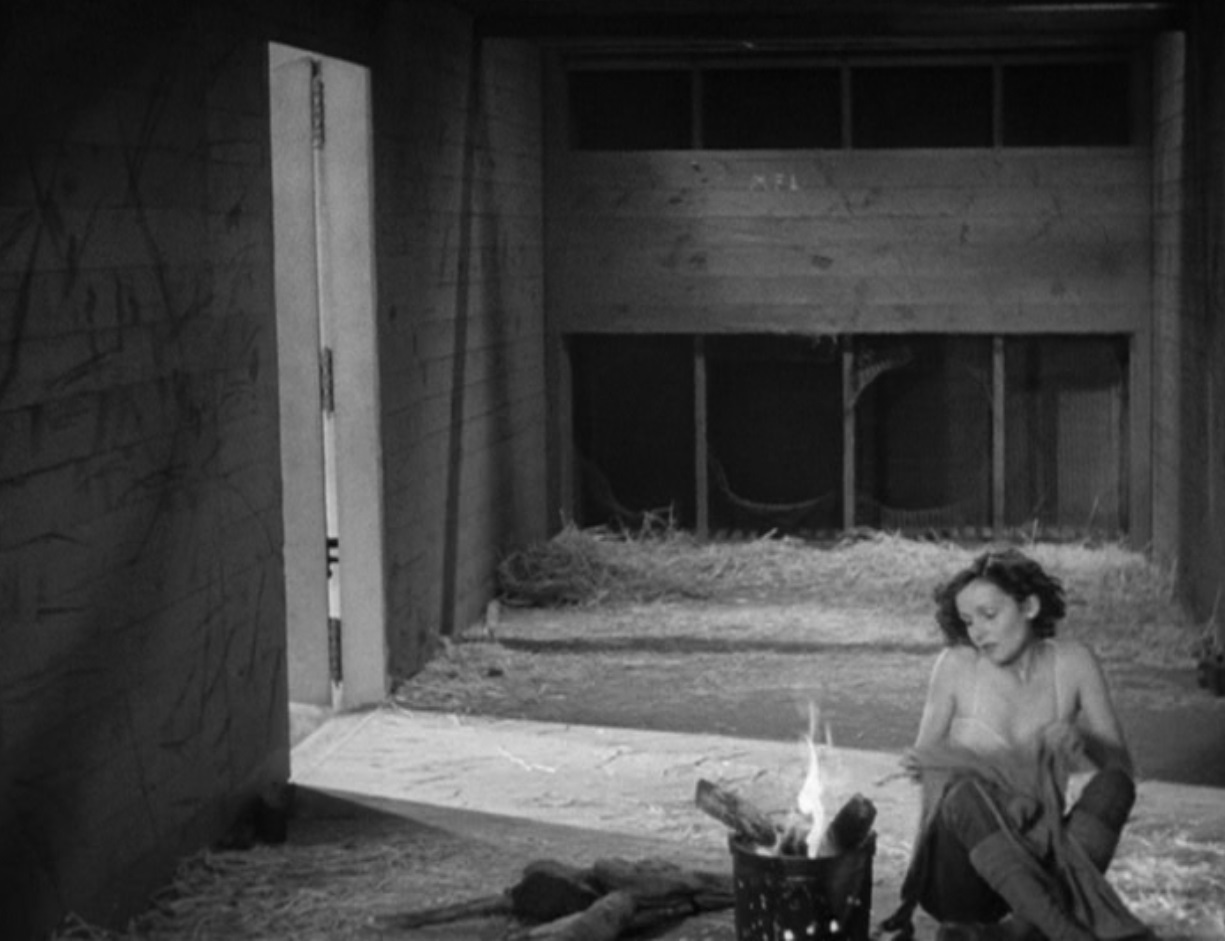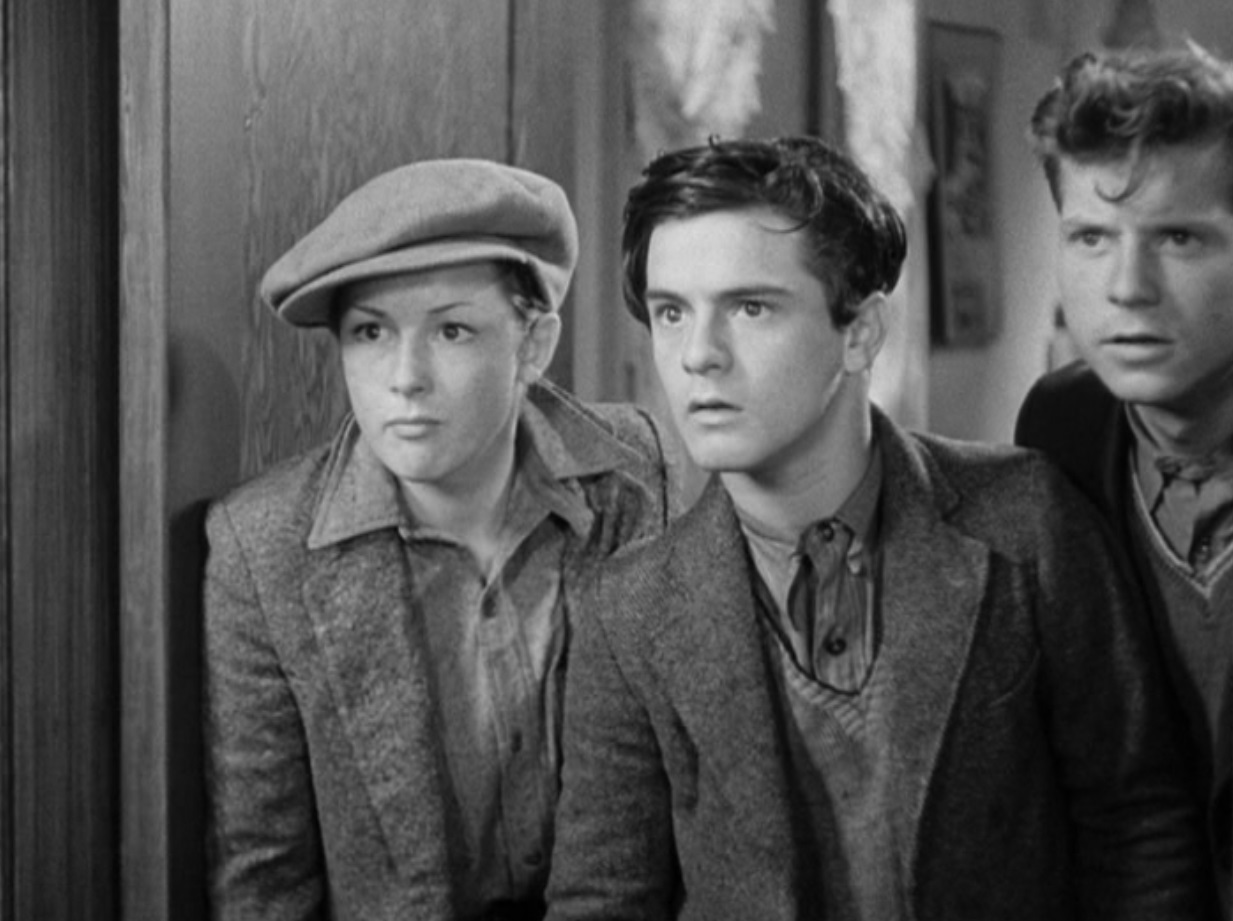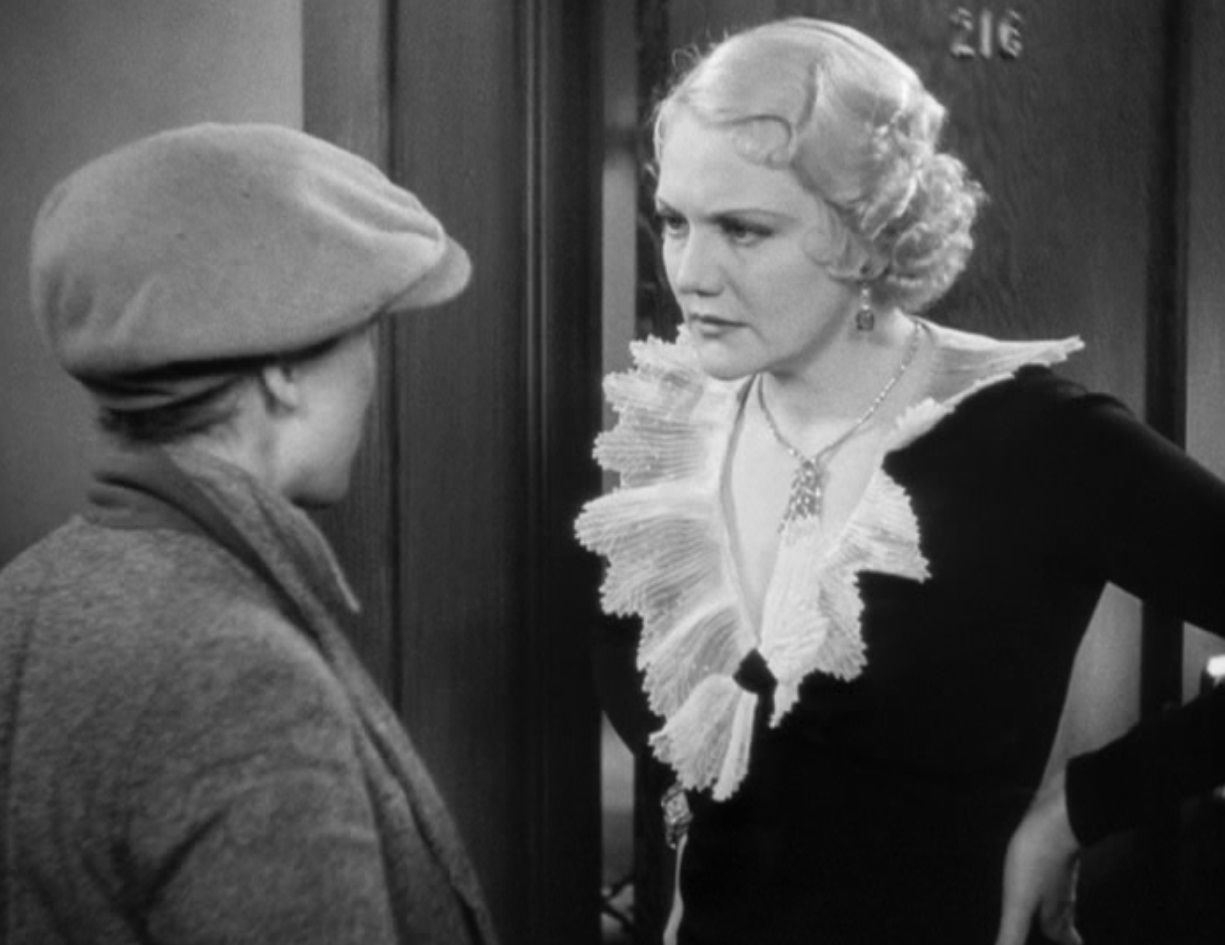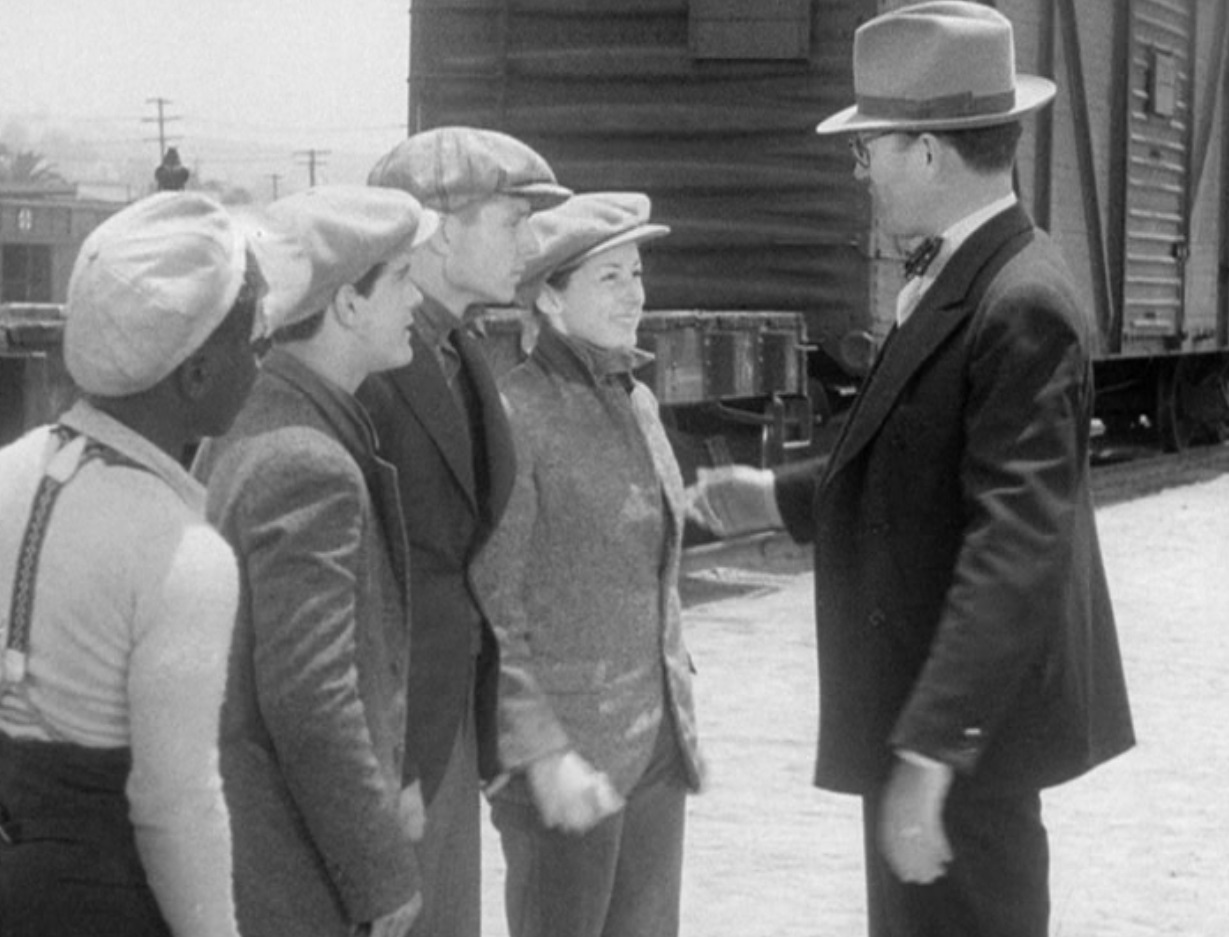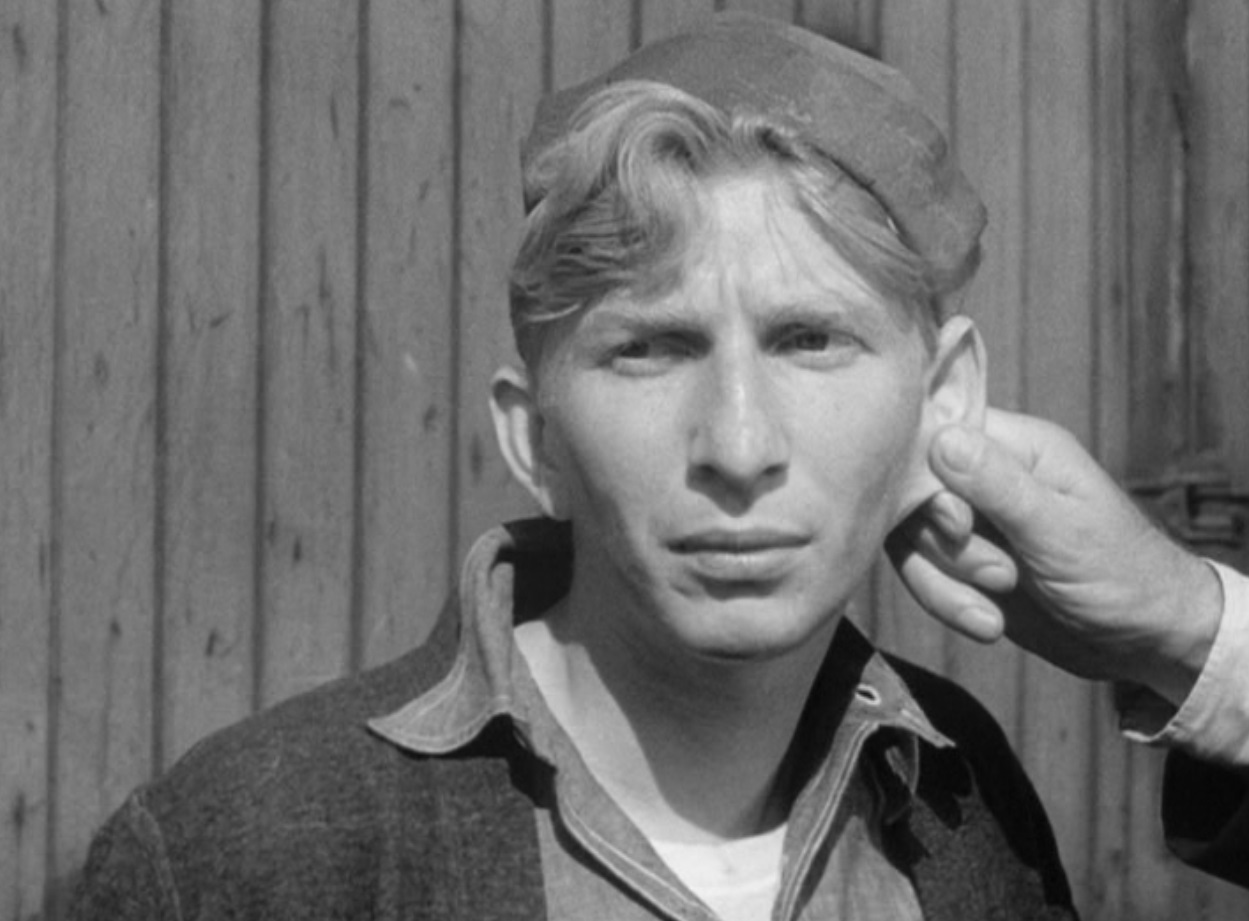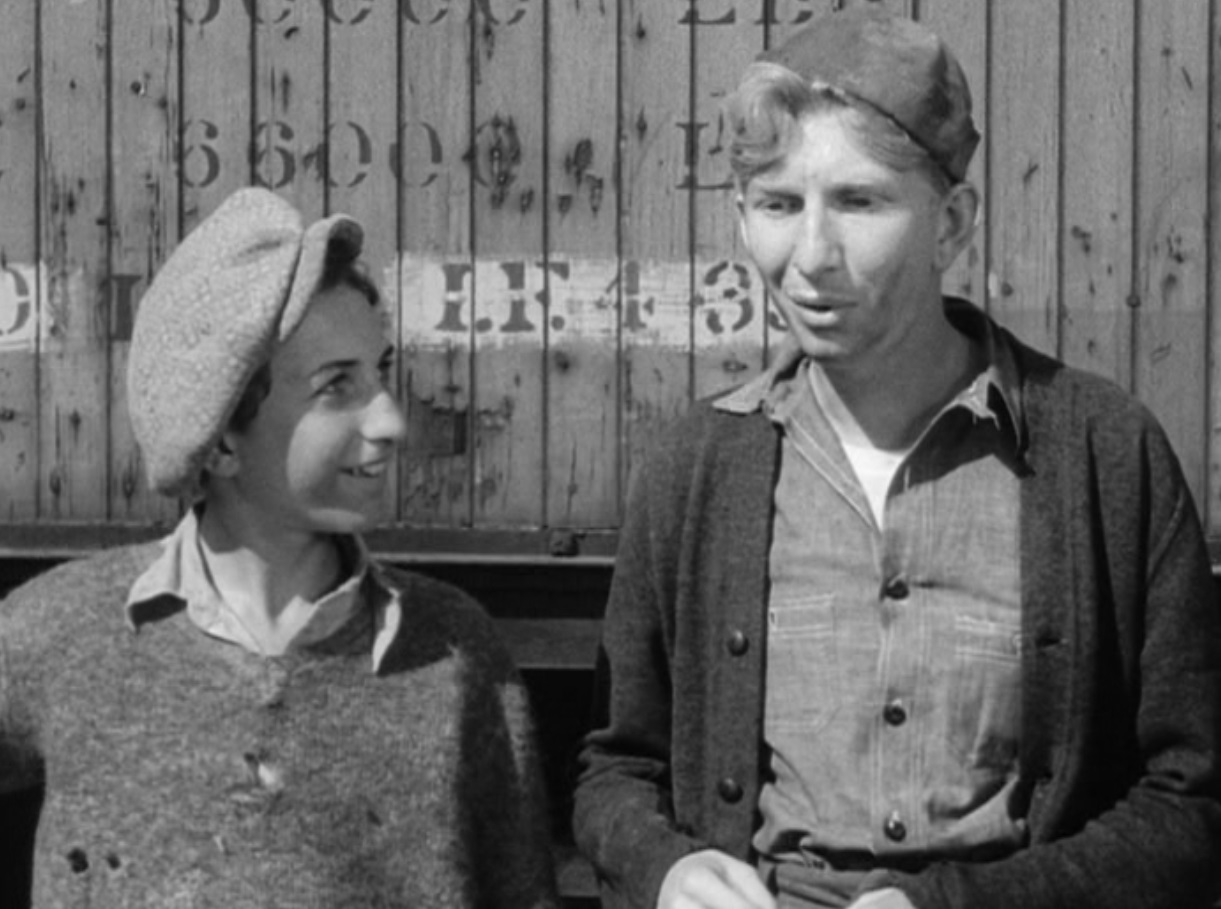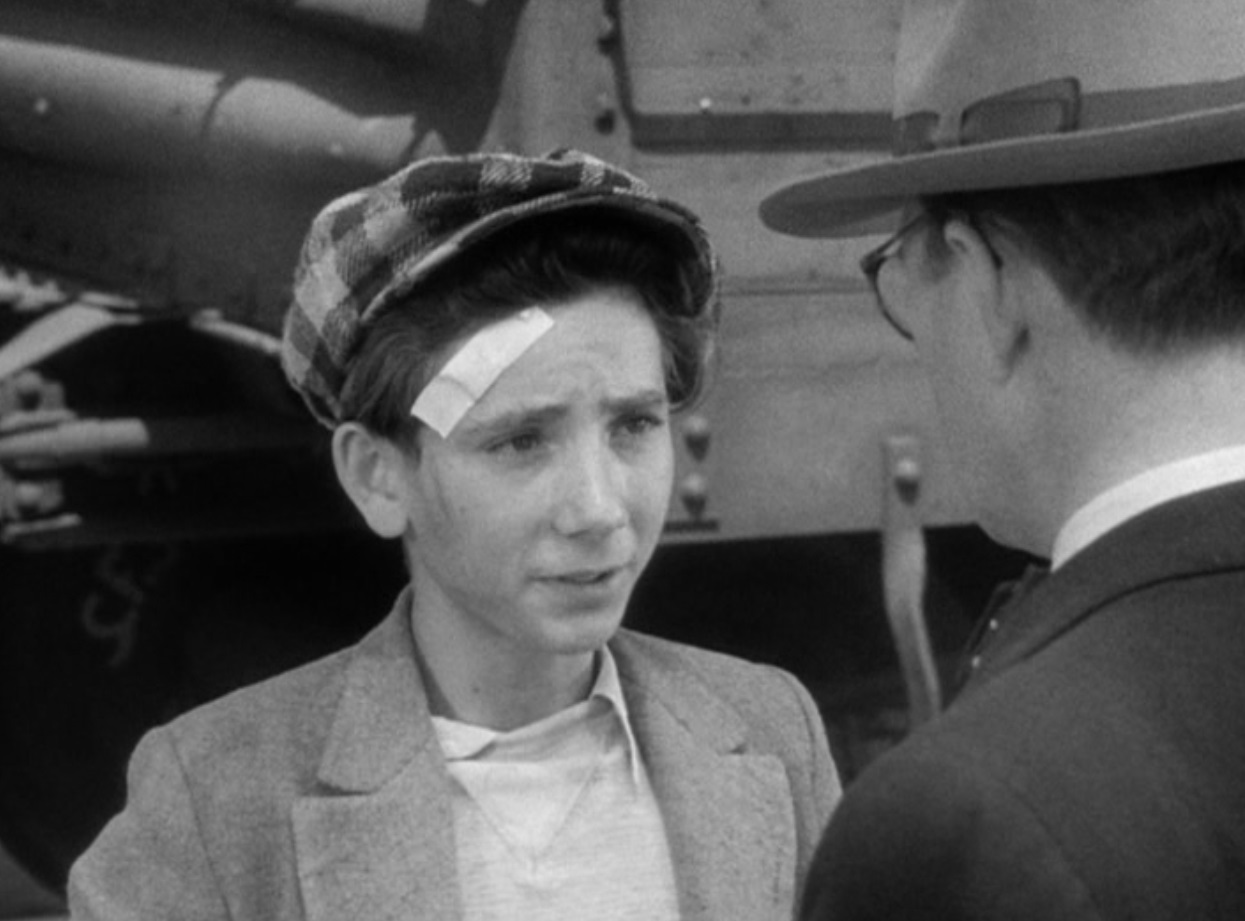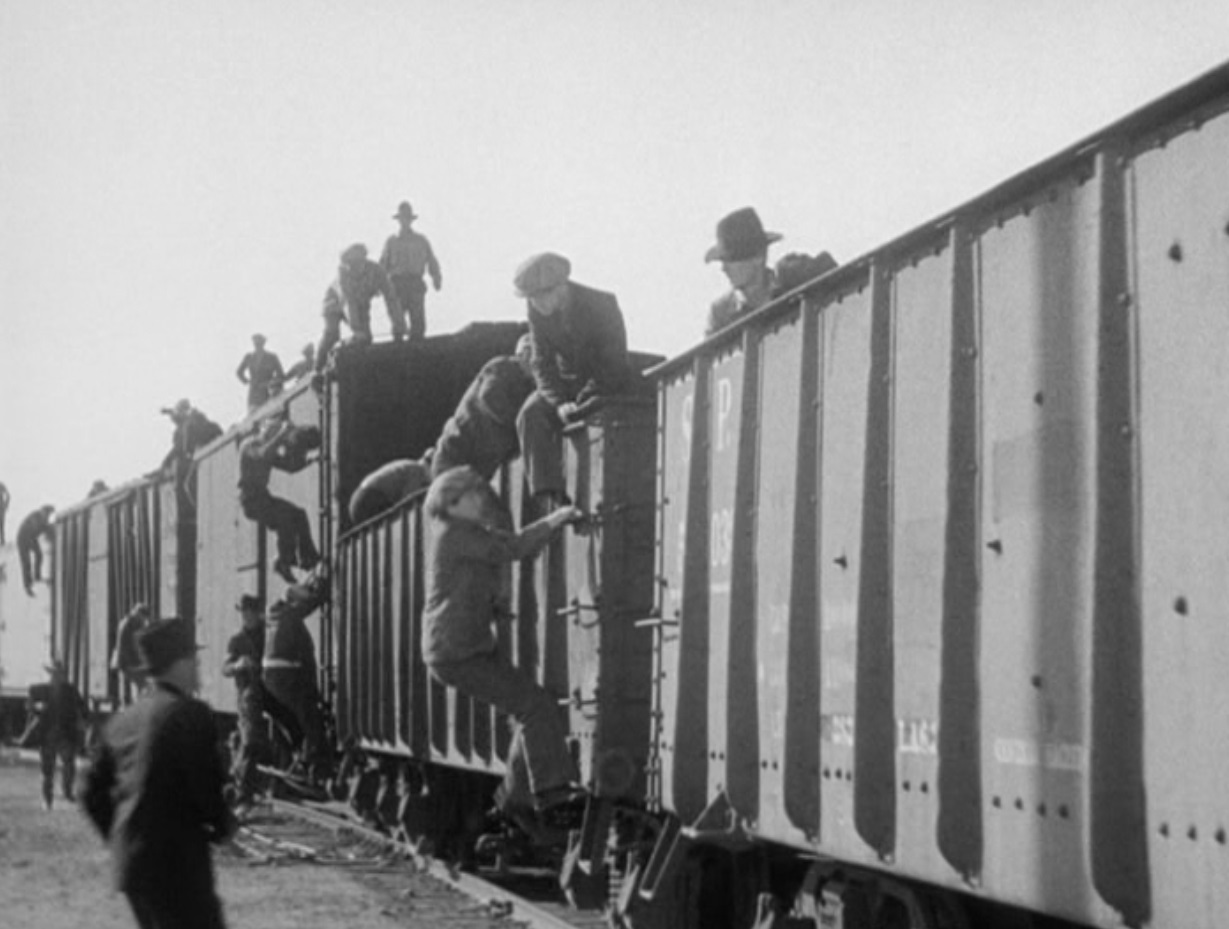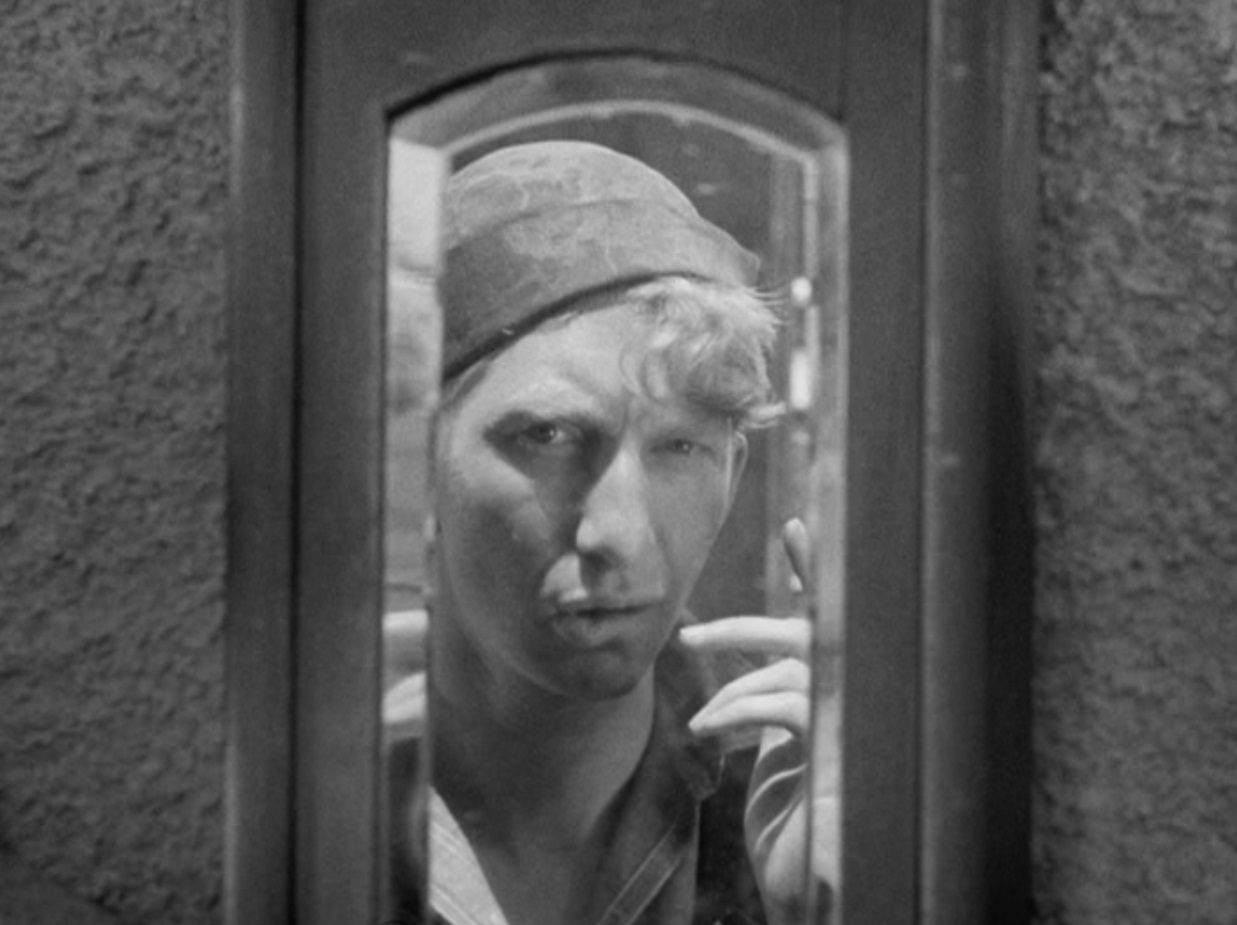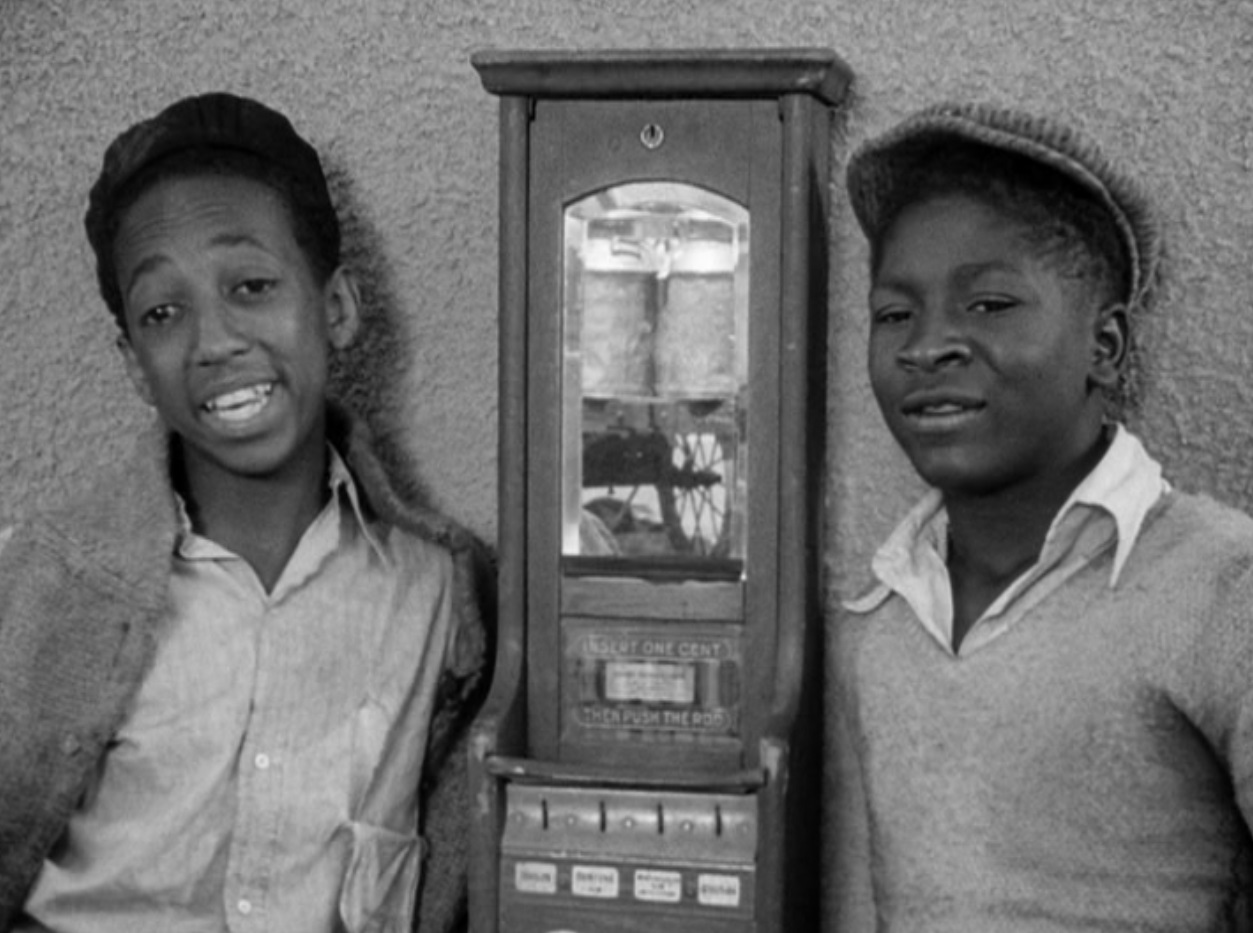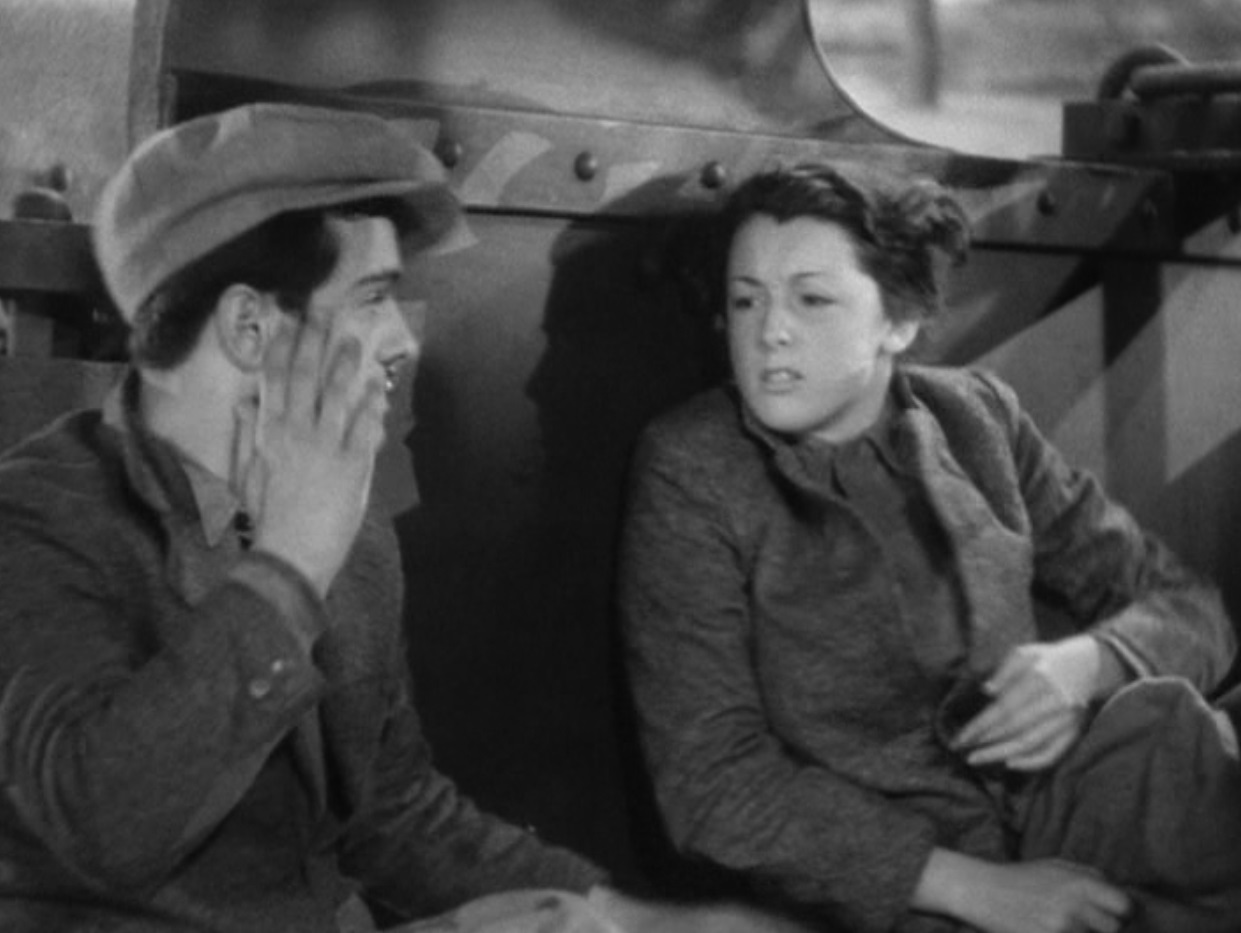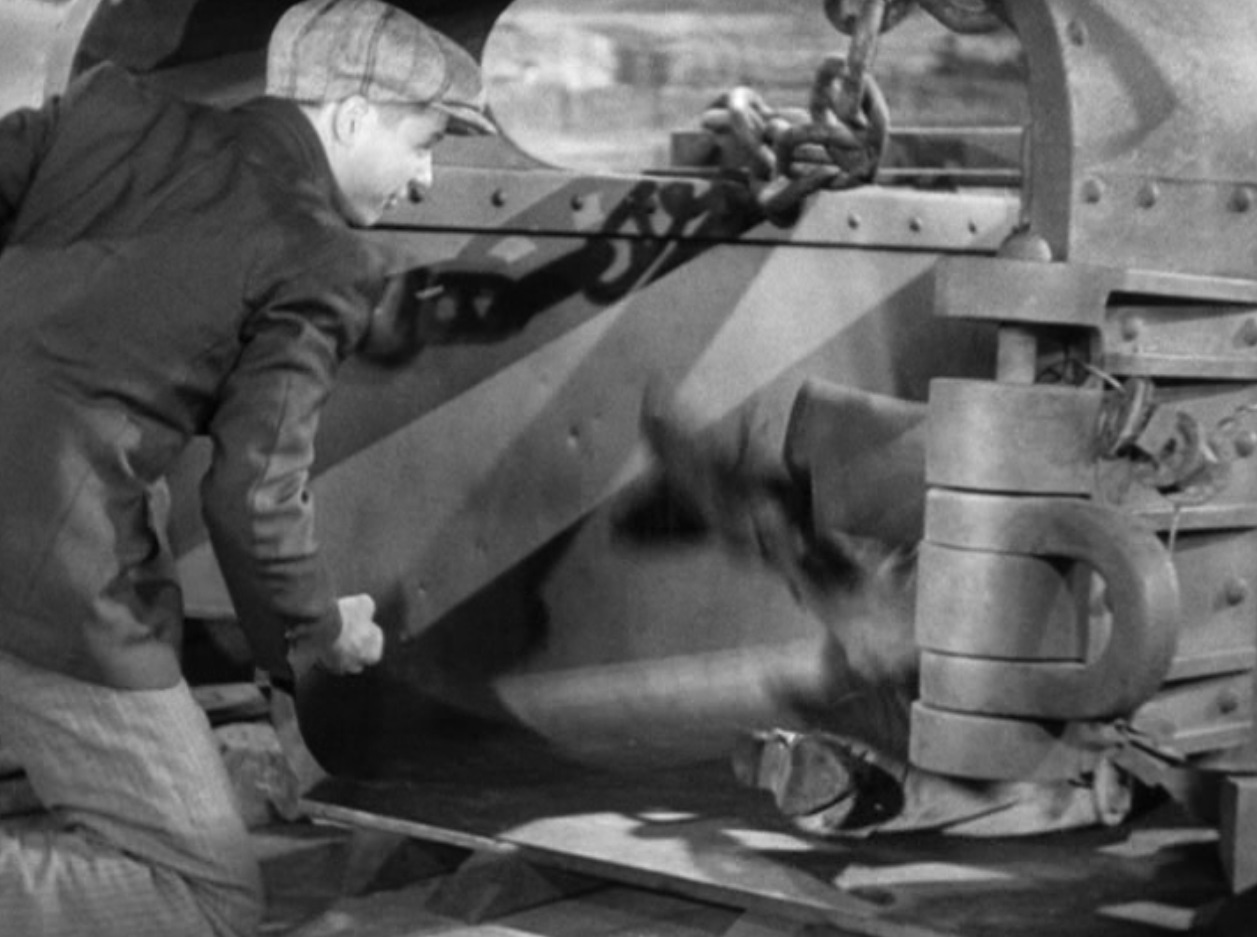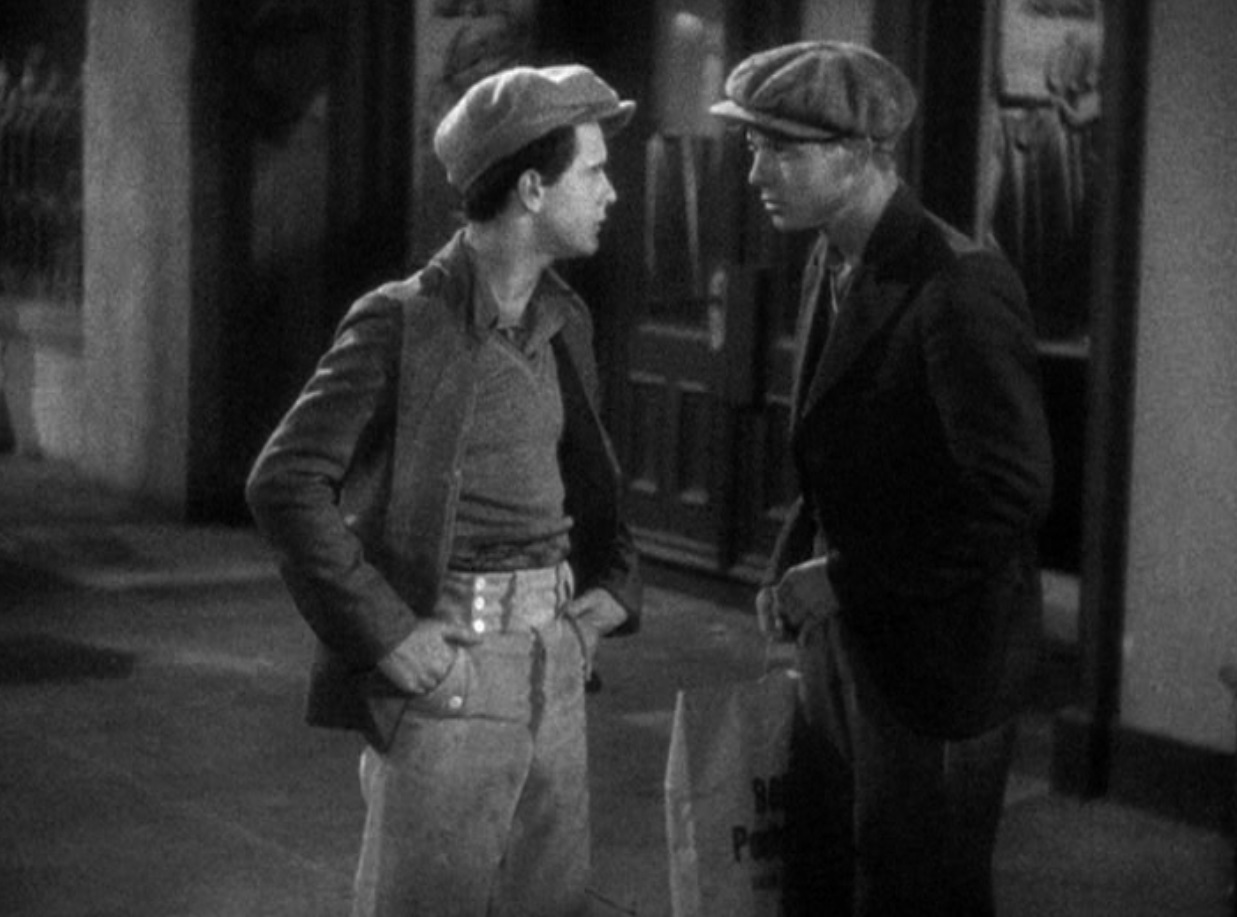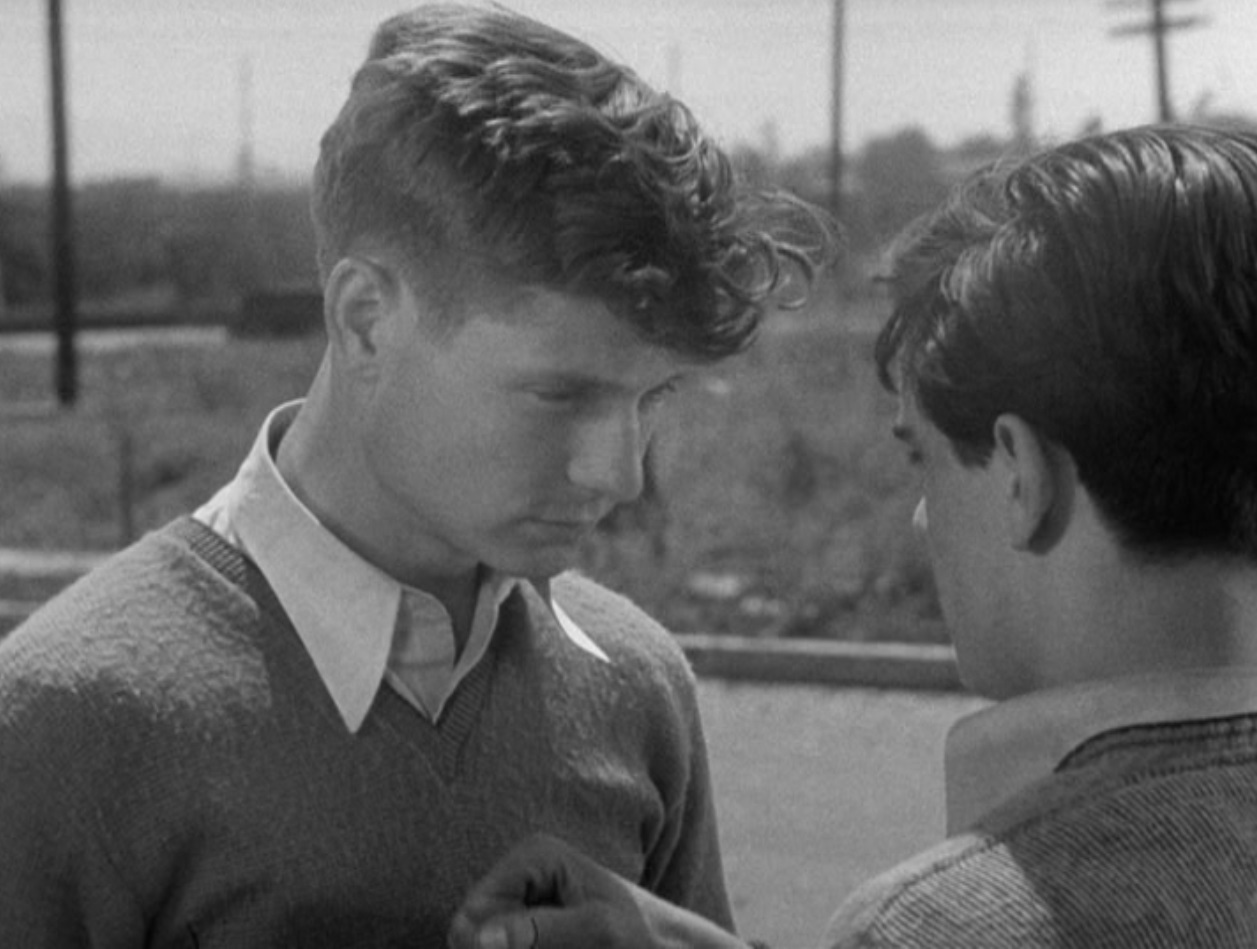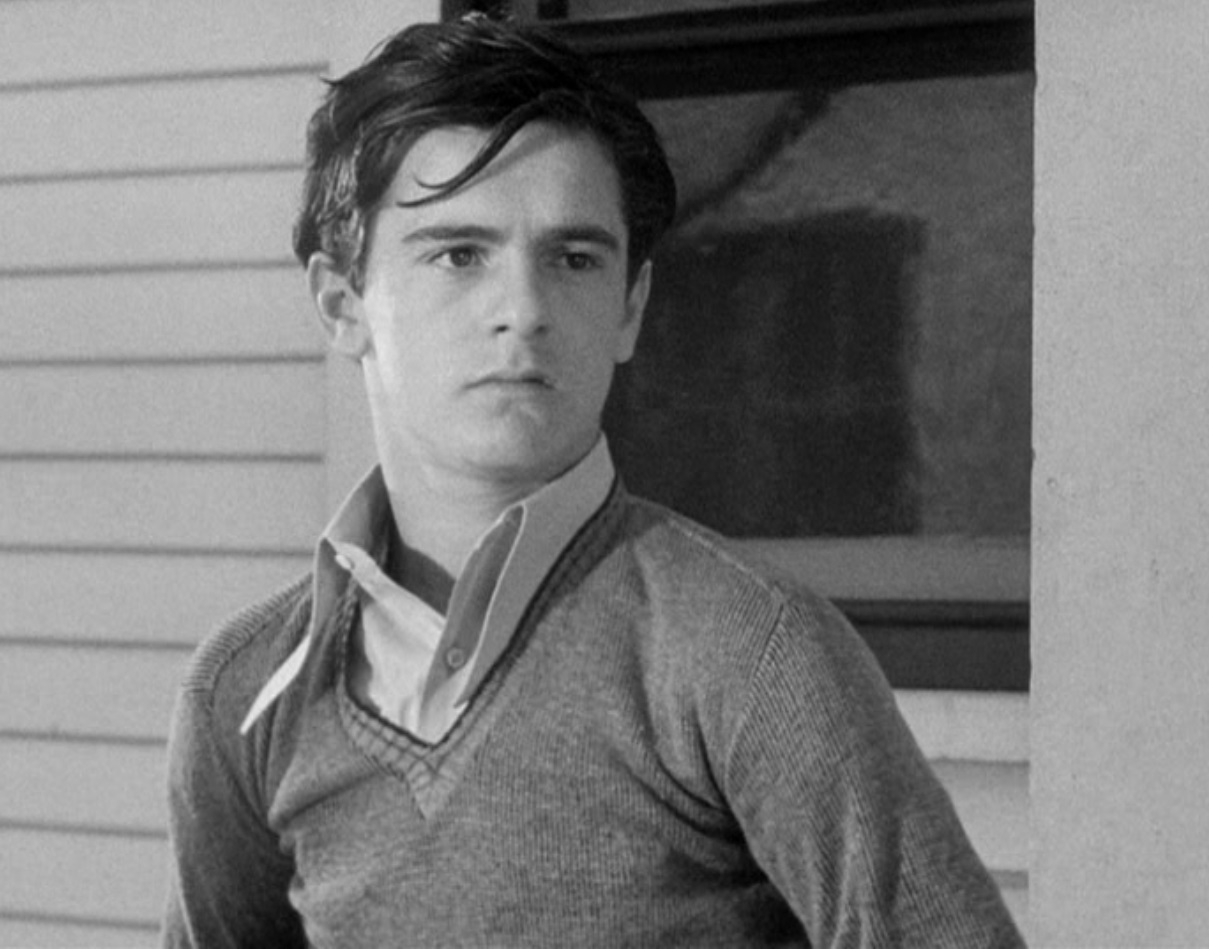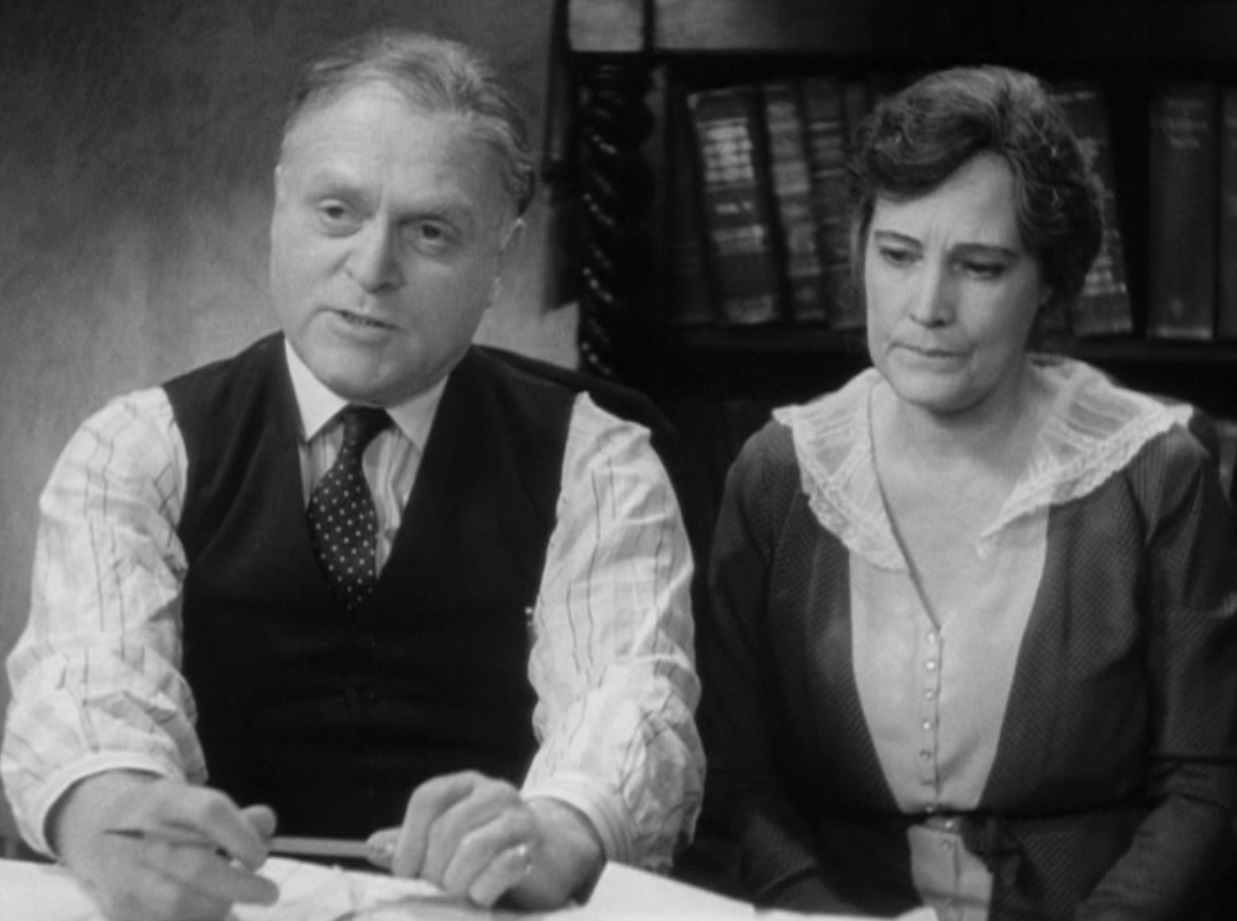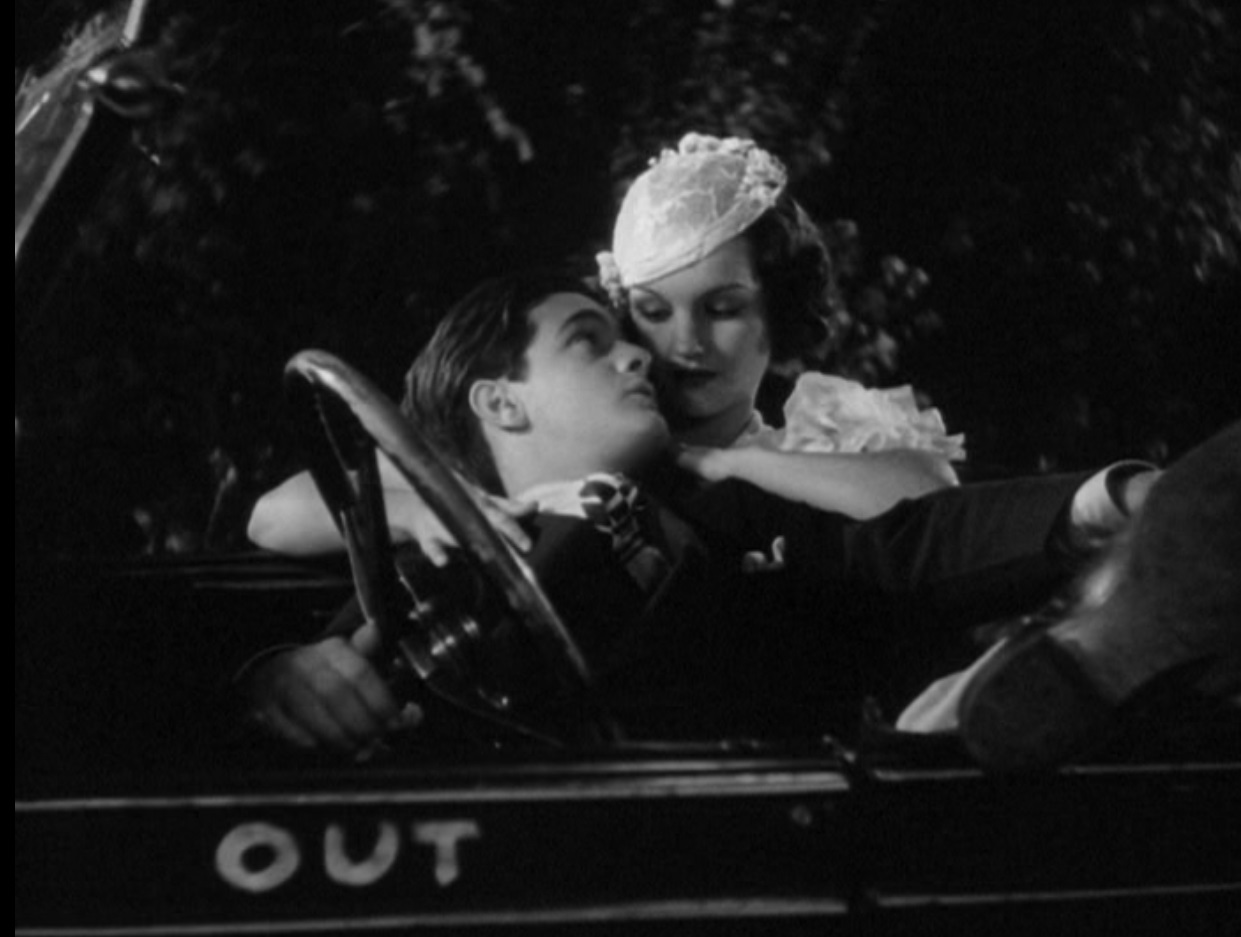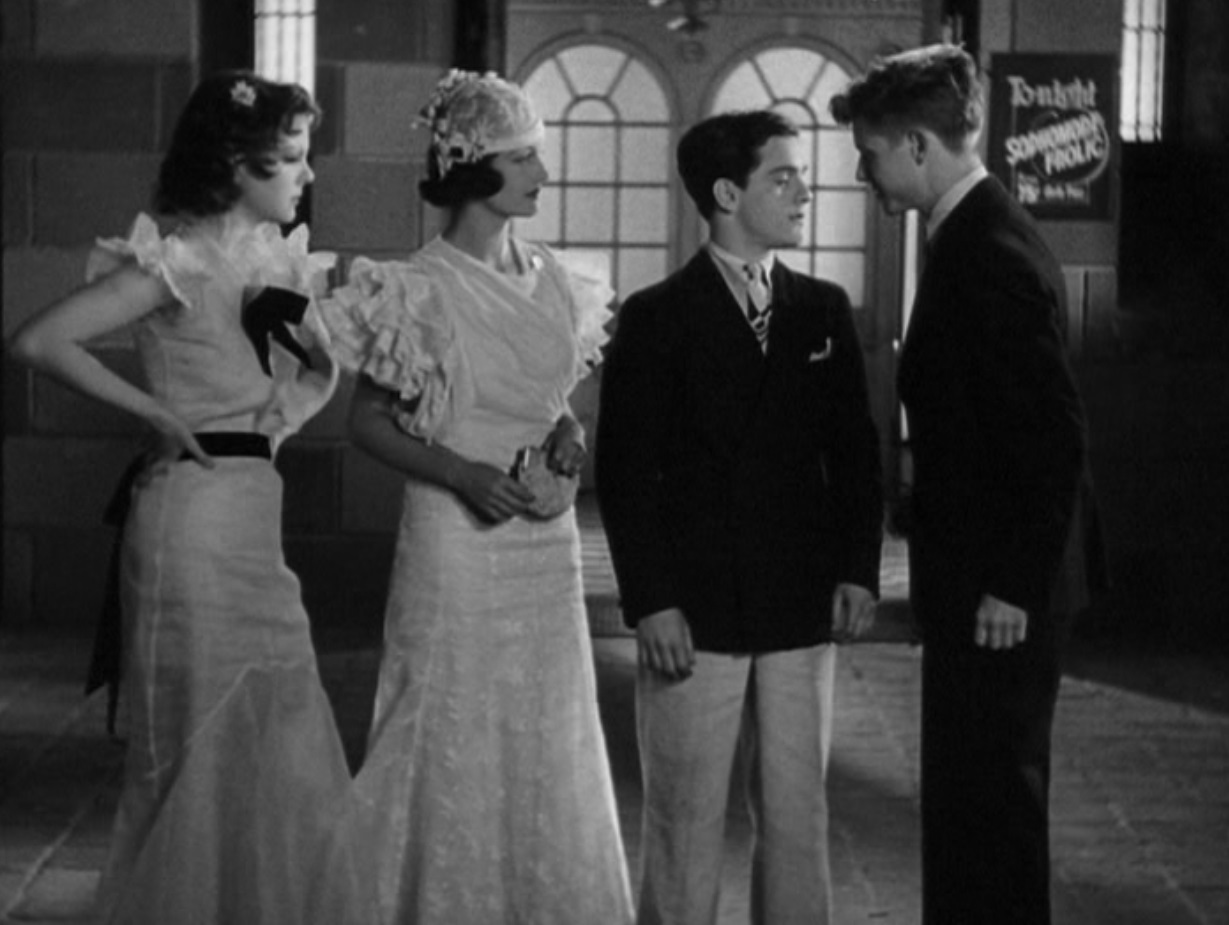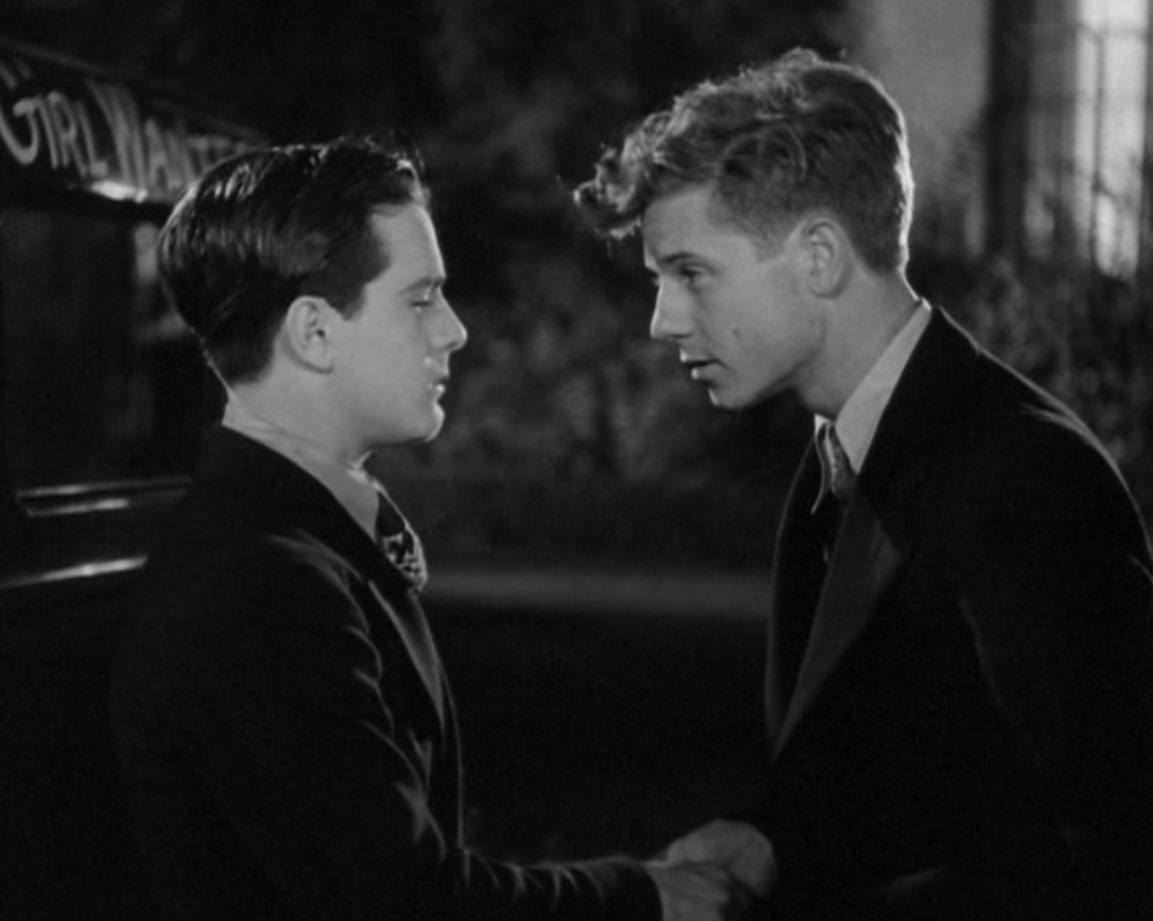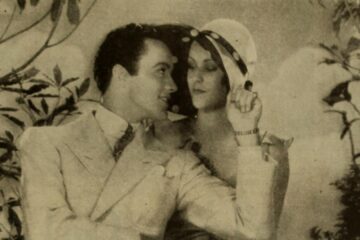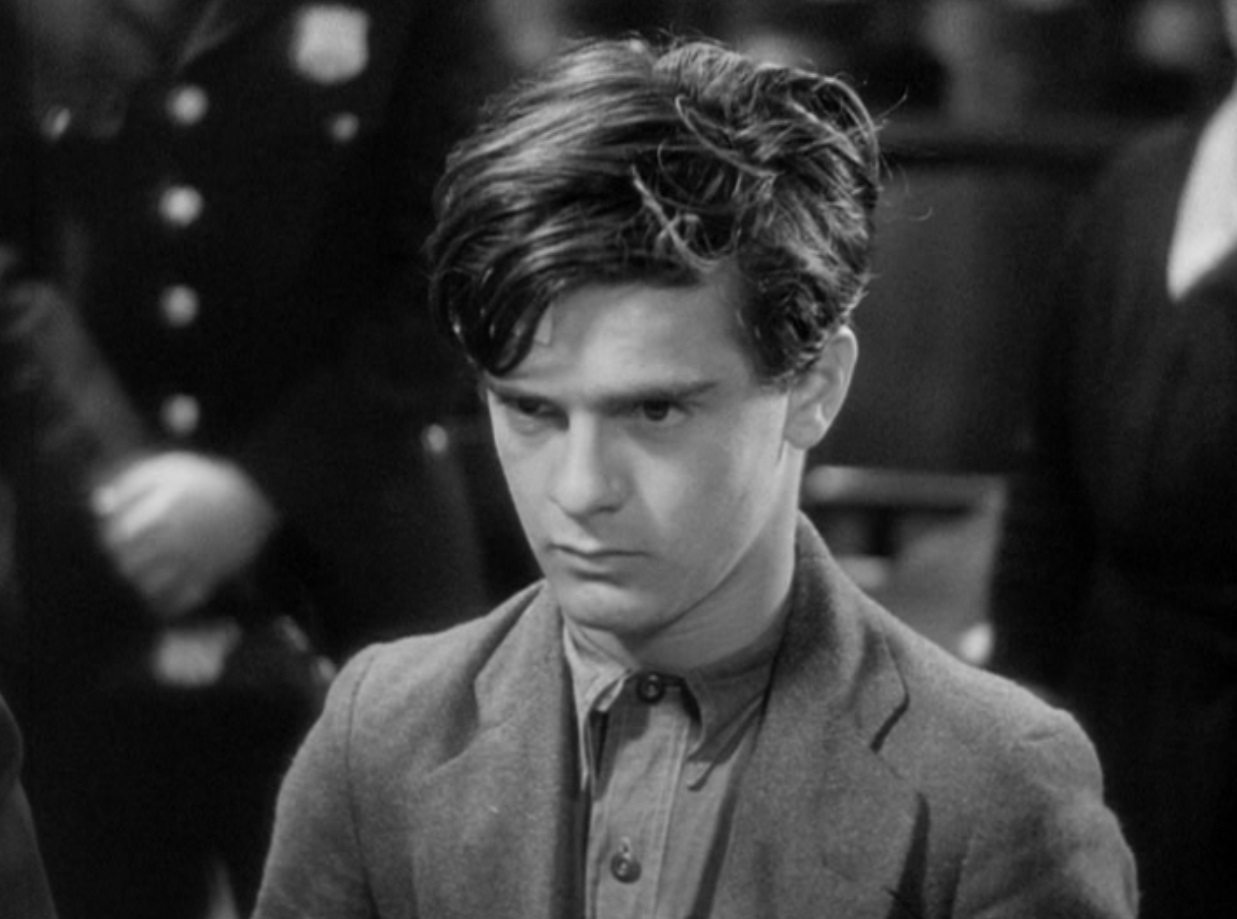 |
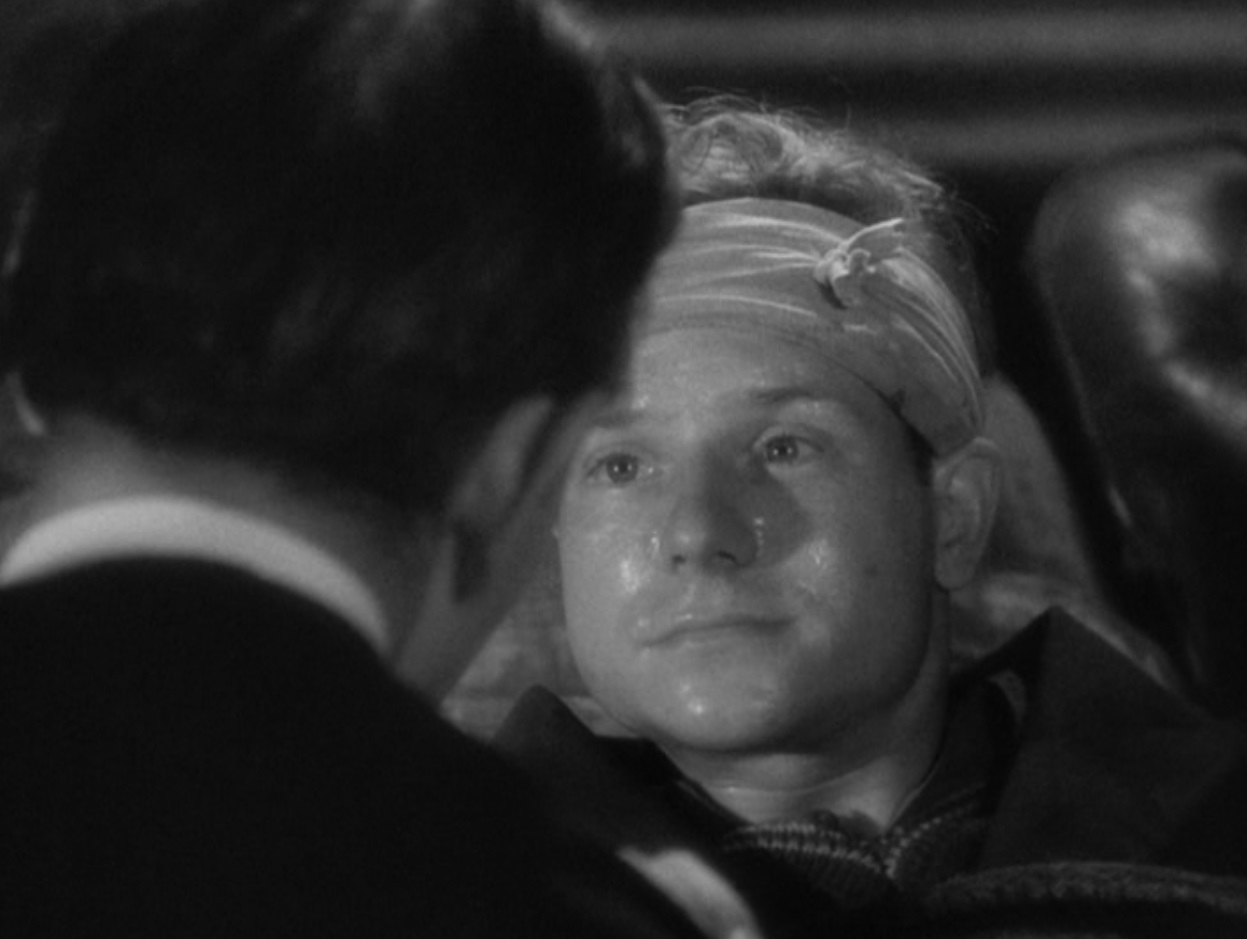 |
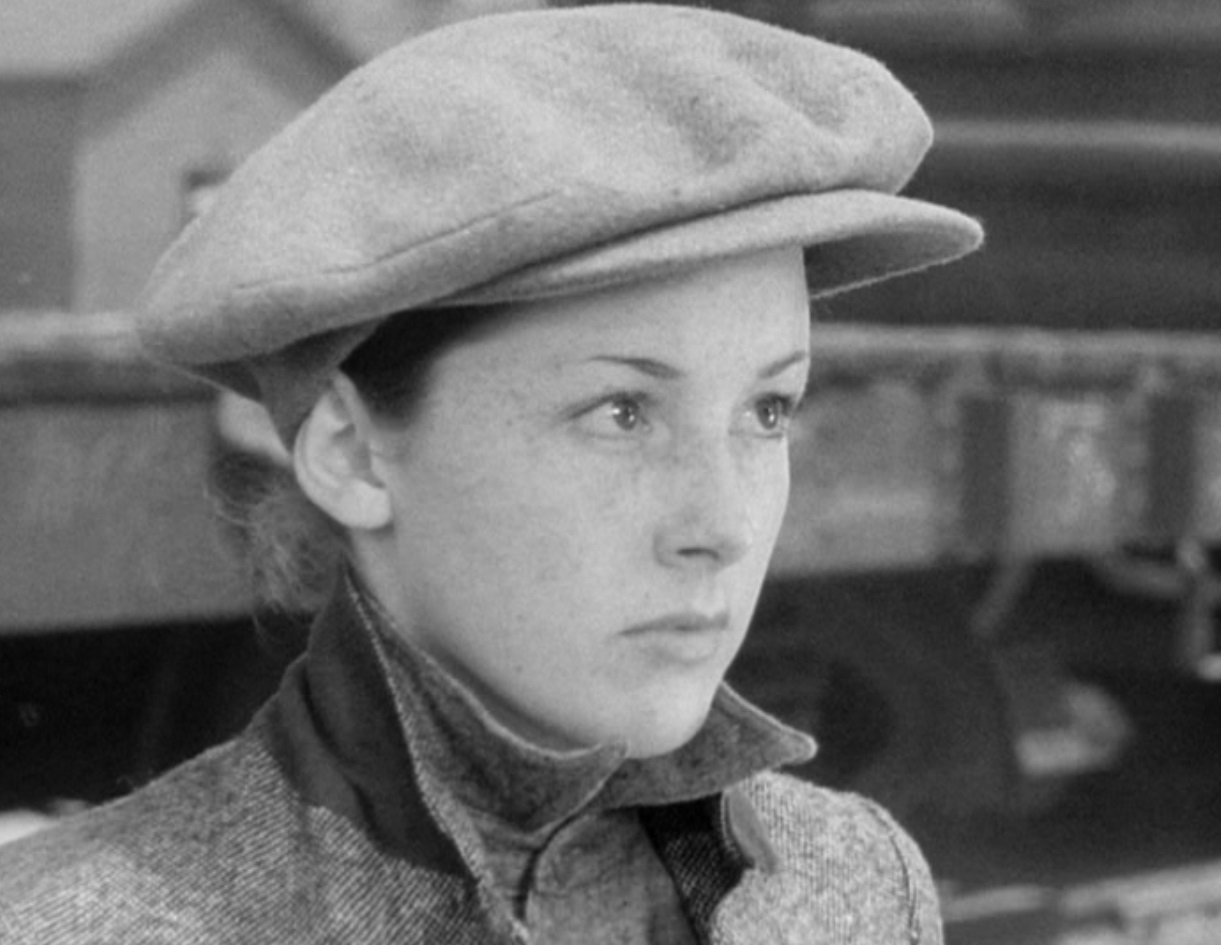 |
| Eddie Smith Frankie Darro |
Tommy Gordon Edwin Phillips |
Sally Dorothy Coonan Wellman |
| Released by Warner Bros. Directed by William A. Wellman Run time: 68 minutes |
||
Proof That It’s a Pre-Code Film
- Children leaving home during the Depression and surviving as well as they can, fighting back against indifferent adults, cruel police officers, and violent trainmen.
- One of the traveling youngsters, Lola (Ann Hovey), gets caught in a train by herself by an eager trainman (Ward Bond) who, though only implied, clearly rapes her. The boys discover what has happened and kill the trainman.
- The lead trio of Eddie, Tommy and Sally visit Sally’s aunt’s apartment. Though the movie makes it purposefully vague, it’s not hard to figure out that the aunt is running a bordello.
Wild Boys of the Road: Desperate Days
“Go ahead! Put me in a cell. Lock me up! I’m sick of being hungry and cold. Sick of freight trains. Jail can’t be any worse than the street. So give it to me!”
Eddie sneers. He’s just been arrested after being set-up to give a robbery note to the box office woman of an old movie house. He now stands in front of a judge who has been swiftly condemning all the actions that Eddie and his two friends have gone on in their endless quest to find work.
Finally, Eddie can’t take it any more. “You say you’ve got to send us to jail to keep us off the streets. Well, that’s a lie. You’re sending us to jail because you don’t want to see us. You want to forget us. But you can’t do it because I’m not the only one. There’s thousands just like me, and there’s more hitting the road every day.”
His friend Tommy, standing on a pair of hastily constructed crutches, adds, “You read in the papers about giving people help. The banks get it. The soldiers get it. The breweries get it. And they’re always yelling about giving it to the farmers. What about us? We’re kids!”
Eddie and Tommy have a fair reason to be better. Sixty minutes earlier they were both living a happy and carefree life in a small town, going to dances and driving their jalopies with their best girls in arm. Tommy is having it rough because his single mother doesn’t have time for him between work, and Eddie arrives home to find his father downsized.
Unhappy with being burdens on their parents, Eddie and Tommy sell their car and hit the road to Chicago, sure that there are jobs there where they can make some money to send back home. Instead, the boys are quickly assimilated into the culture of the other boys who ride the trains, and soon find railroad police waiting for them at every stop, eager to force them into going to the next town. “We don’ t even have enough jobs for the men here, let alone the boys,” one cop snarls.
Time goes but things just get rougher. The movie is fairly episodic, and we follow the boys as they make friends and find the troubles of the road get more and more dangerous. One girl is raped by a railway policeman. One boy loses his leg after getting hit on the head and falling in front of a train. The boys build a Hoover town in a series of empty pipes only to be driven out by the police armed with fire hoses.
Like Heroes for Sale that Wellman astonishingly directed in the same year, both deal with men desperately trying to find their worth in a society that finds them valueless. While Heroes more directly confronts the social issues for veterans, Wild Boys takes the story of two boys who scarcely understand the world unaware of it how dangerous the it has become.
As a work of art, it’s a daring portrait of social realism. Wellman is meticulous with his camera, tensely using cutaways and objects in the foreground to create elements of confusion and to pull the audience’s attention deeper into the film.
Like Heroes, it affirms the sentiment that the Depression was caused by the conspiracy of big businesses and compounded by the complicity of the government. Wellman subscribes to the idea that all that men want is a job to work, and he ruthlessly depicts two boys near-futile attempts to do so.
That they finally find the only sympathetic figure of authority in government is a surprise, and the ending was supposedly changed by the studio, with the original bleak ending of the boys and their friend being sent to jail. The new ending isn’t much cheerier, but it celebrates the small victories and the same hope that Wellman so beautifully articulated in Heroes: that one setback can’t destroy America. In the face of all that came before and what is sure to come after, it’s both heroic, foolhardy, and the perfect finale.
Screen Capture Gallery
Click to enlarge and browse. Please feel free to reuse with credit!
Other Reviews, Trivia, and Links
- The film’s upbeat ending, with the kids taken in hand by a kindly judge wearing a pair of Roosevelt glasses, was a reshoot of the film’s original ending that had the judge throw the book at them and send them to a juvenile reformatory. Executives at Warners found the original ending “too bleak.” Both director William Wellman and many contemporary film critics felt the happy ending was a cop out, removing the film’s sense of urgency and making the problem of vagabond children seem like it had already been solved.
- This suited the censors fine, though, as they were eager not to set off any controversies along the lines of Warners’ I Am a Fugitive from a Chain Gang which had raised a moral outcry and had the state of Georgia among others threatening Hollywood and even promising Paul Muni and Mervyn LeRoy that they weren’t welcome in their state. Both this outcry and the incoming Roosevelt administration in March 1933 made Warner Bros. executives a little more eager to pull their punches in their films.
- Speaking of censors and censorship, state board commonly cut out the scene of Red finding Lola alone in the car alone, leaving much more to the audience’s imagination. Many states also cut down the battle between the boys and the police officers at the pipe city, not because they didn’t want to show the boys being brutalized by police but because they knew they would get complaints from police unions if cops were getting pulverized.
- Wild Boys is the only major film role for Dorothy Coonan, who played Sally, as she met and married director William Wellman on this shoot. She’d been a chorus dancer before and appeared in 42nd Street. Notably, late in the film, when Tommy is playing the harmonica, he’s belting out that film’s title track and she’s dancing the same moves that she’d done in the other film, though with significantly different outerwear.
- Yes, that is a picture of a very young Alan Hale Jr., AKA the Skipper, on the judge’s desk at the end of the film.
Awards, Accolades & Availability
- This film is in my Essential Films of Pre-Code Hollywood list.
- This film is available in the second Forbidden Hollywood DVD collection, which also includes the films Other Men’s Women, Midnight Mary, The Purchase Price, Frisco Jenny, and Heroes for Sale.
More Pre-Code to Explore
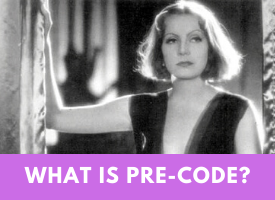 |
 |
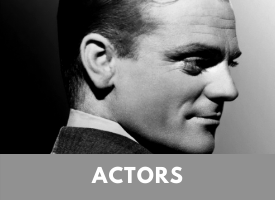 |
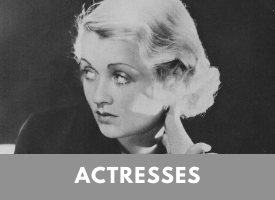 |
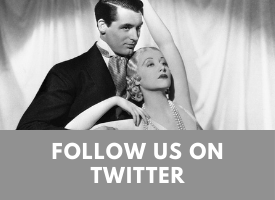 |
 |


